Marine
1. Fibrous Cement
Ooidal grainstone with rims of acicular (aragonitic) marine cement viewed in parallel polarised light (Recent, Bahamas).
Thin section kindly provided by T. Geel, Vrije Universiteit, Amsterdam

HIDE INFO

SHOW INFO
2. Fibrous Cement
Ooidal grainstone with rims of acicular (aragonitic) marine cement viewed in cross polarised light (Recent, Bahamas).
Thin section kindly provided by T. Geel, Vrije Universiteit, Amsterdam

HIDE INFO

SHOW INFO
3. Fibrous Cement
Enlarged view of previous image of ooidal grainstone with rims of acicular (aragonitic) marine cement viewed in crossed polarisers (Recent, Bahamas).
Thin section kindly provided by T. Geel, Vrije Universiteit, Amsterdam

HIDE INFO

SHOW INFO
4. Fibrous Cement
Enlarged view of previous image of ooidal grainstone with rims of acicular (aragonitic) marine cement viewed in crossed polarised light (Recent, Bahamas).
Thin section kindly provided by T. Geel, Vrije Universiteit, Amsterdam

HIDE INFO

SHOW INFO
5. Fibrous Cement
Skeletal grainstone with isopachous rims of fibrous marine cement viewed in parallel polarised light. In the top left corner the benthic foraminifer Archaias.
Recent, Bahamas

HIDE INFO

SHOW INFO
6. Fibrous Cement
Ooidal and micrite-coated grain grainstone with an almost isopachous rim of turbid, impurity-rich bladed cement followed by mms long rims of radial fibrous cement.

HIDE INFO

SHOW INFO
7. Isopachous Cement
Stained thin section (Alizarin red + K Ferricyanide) showing an ooidal and aggregate-micrite coated grain grainstone with grains surrounded by a thin isopachous rim of calcite cement of possibly marine origin (pink). Remaining pore space has been filled by Fe calcite (blue with K Ferricyanide because of burial reducing conditions) in the burial diagenetic environment.
Pennsylvanian, Asturias, N Spain, cf. Bahamonde et al. (2015, 2017)

HIDE INFO

SHOW INFO
8. Botryoidal aragonite
Cementstone from Permian reef facies showing irregular mosaic of calcite spar neomorphic on botryoids of former aragonite crystals. Botryoidal aragonite was a typical cement of upper Palaeozoic and Triassic reefs. Botryoids (hemispherical shape) have the outer rounded margin lined by micrite crust and clots.
Permian, New Mexico, USA

HIDE INFO

SHOW INFO
9. Botryoidal aragonite
Cementstone from Permian reef facies showing irregular mosaic of calcite spar neomorphic on botryoids of former aragonite crystals as in previous image viewed in cross polarised light.
Permian, New Mexico, USA

HIDE INFO

SHOW INFO
10. Botryoidal aragonite
Cementstone from Permian reef facies showing irregular mosaics of calcite spar neomorphic on botryoids of former aragonite crystals. Botryoids (hemispherical shape) have the outer rounded margin lined by micrite crusts, clots and peloids of possible biologically induced/influenced (microbial) origin.
Permian, New Mexico, USA

HIDE INFO

SHOW INFO
11. Radiaxial Fibrous Cement
Primary cavity in Permian reef facies lined by 1-2 mm thick crystals of radiaxial fibrous calcite cement with polygonal contacts (indicative of fast cement growth).
Permian, New Mexico, USA

HIDE INFO

SHOW INFO
12. Radiaxial Fibrous Cement
Previous image of primary cavity in Permian reef facies lined by 1-2 mm thick crystals of radiaxial fibrous calcite viewed in crossed polarised light.
Permian, New Mexico, USA

HIDE INFO

SHOW INFO
13. Radial Fibrous Cement
Primary cavity in Permian reef facies (to notice that the cavity is supported by microbial peloidal micrite crusts) lined by 1-2 mm thick crystals of radial fibrous cement. The remaining pore space in the centre is filled by mosaic of equant sparite.
Permian, New Mexico, USA

HIDE INFO

SHOW INFO
14. Radial Fibrous Cement
View in crossed polarised light of previous image. Primary cavity in Permian reef facies (to notice that the cavity is supported by automicrite of possible microbial origin) lined by 1-2 mm thick crystals of radial fibrous calcite. The remaining pore space in the centre is filled by mosaic of equant sparite.
Permian, New Mexico, USA

HIDE INFO

SHOW INFO
15. Radiaxial Fibrous Cement
Clotted peloidal micrite microbial boundstone (visible in lower left corner) with several mms large primary cavities filled by radiaxial fibrous calcite cement. The sparse rhombic crystals of gray/light green colour are burial replacive dolomite.
Pennsylvanian, Asturias, N Spain, cf. Bahamonde et al. (2015, 2017)

HIDE INFO

SHOW INFO
16. Fibrous Cement
Pisoidal-peloidal grainstone with sub-parallel mm thick rims of fibrous cement occasionally lined by micrite crusts.
Permian, New Mexico, USA

HIDE INFO

SHOW INFO
17. Micritisation
Skeletal peloidal packstone to grainstone containing in the centre a cortoid: a skeletal grain with the outer rim micritised. The skeletal fragment, likely aragonitic, has been dissolved and replaced by equant calcite spar (burial diagenesis). Micritisation is generally produced by endolithic micro-organisms finely boring the outer rim of shells and it is typical of lagoonal environments.
Thin section kindly provided by T. Geel, Vrije Universiteit, Amsterdam

HIDE INFO

SHOW INFO
18. Micritisation
Cortoid packstone with several skeletal fragments coated by micrite envelopes. Most of the micrite envelopes are both destructive (microborings) and constructive (accretionary micrite algal-microbial coatings). The skeletal grains replaced by calcite spar mosaic (burial diagenesis) might have been aragonitic green algae.

HIDE INFO

SHOW INFO
19. Stromatactis
Siliceous sponge microbial boundstone facies with stromatactis-like cavities. These are primary voids of undetermined origin with flat base and irregular tops usually filled by cement and common in mud mound lithofacies. In this case, the cement is a rim of radiaxial fibrous calcite (marine diagenesis) followed by equant calcite spar (burial diagenesis).
Lower Jurassic, High Atlas, Morocco, cf. Della Porta et al. (2013)

HIDE INFO

SHOW INFO
20. Stromatactis
Skeletal peloidal packstone belonging to a middle ramp sponge mound facies containing stromatactis-like voids lined by isopachous rims of radial fibrous cement (pink, non ferroan calcite) followed by drusy mosaic of calcite spar (blue, ferroan calcite). Thin section stained with alizarin red and k ferricyanide.
Lower Jurassic, High Atlas, Morocco, cf. Della Porta et al. (2013)

HIDE INFO

SHOW INFO
21. Stromatactis
Peloidal skeletal (siliceous sponge spicules) wackestone from sponge mound facies in middle ramp with stromatactis-like cavity filled by isopachous rim of radial fibrous cement (marine) and mosaic of blocky sparite (burial).
Lower Jurassic, High Atlas, Morocco, cf. Merino-Tome' et al. (2012), Della Porta et al. (2013)

HIDE INFO

SHOW INFO
22. Micritisation
Borings and thick micrite envelope showing microborings of the mollusc shell. Micritisation takes place mostly on shallow lagoon sea floor.
Upper Cretaceous (Turonian) Miskar Field, offshore Tunisia

HIDE INFO

SHOW INFO
23. Aragonite cement
SEM image of aragonite acicular crystals (with square tops) forming ooids in recent tropical carbonate setting.
Recent, Turks & Caicos Islands

HIDE INFO

SHOW INFO
24. Reef cement
SEM image of early marine High Mg calcite cement from Jamaican reef front, Discovery Bay.
Recent, Discovery Bay, Jamaica

HIDE INFO

SHOW INFO
25. Fibrous cement
Isopachous rims of marine isopachous fibrous cement, locally polygonal in a skeletal grainstone with echinoderms and fusulinid (image in plane polarized light).
Carboniferous, Karachaganak Field, Kazakhstan

HIDE INFO

SHOW INFO
26. Marine cement
Isopachous rims of marine isopachous fibrous cement, locally polygonal in a skeletal grainstone with echinoderms and fusulinid (image in cross-polarized light).
Carboniferous, Karachaganak Field, Kazakhstan

HIDE INFO

SHOW INFO
27. Botryoidal aragonite
Replaced botryoidal aragonite, coated by radiaxial fibrous calcite, followed by anhydrite in the remaining pore space.
Permian, Karachaganak Field, Kazakhstan

HIDE INFO

SHOW INFO
28. Botryoidal aragonite
Replaced botryoidal aragonite, coated by radiaxial fibrous calcite.
Permian, Karachaganak Field, Kazakhstan

HIDE INFO

SHOW INFO
29. Aragonite microspar
Former aragonite microspar and accretionary micrite crusts interpreted as marine precipitation mediated by microbial activity (biologically induced precipitation). Field of view is approximately 3 mm wide.
Carboniferous, Karachaganak Field, Kazakhstan

HIDE INFO

SHOW INFO
30. Peloidal micrite
Peloidal micrite and associated microsparite cement forming patch reefs in Jurassic limestone.
Upper Jurassic, SE England, UK

HIDE INFO

SHOW INFO
31. Peloidal micrite
SEM image of previous peloidal micrite: the central clot of micrite is surrounded by a rim of calcite bladed microsparite.
Upper Jurassic, SE England, UK

HIDE INFO

SHOW INFO
32. Fascicular optic calcite
Fascicular optic calcite showing inclusion-rich irregular crystals viewed in cross polarized light showing undulose extinction. Field of view approximately 2 mm wide.
Mississippian, Llanelly Formation, South Wales, UK

HIDE INFO

SHOW INFO
33. Radiaxial fibrous calcite
Example of radiaxial fibrous calcite surrounding peloidal micrite. Field of view of approximately 2 mm.
Permian, Karachaganak Field, Kazakhstan

HIDE INFO

SHOW INFO
34. Radiaxial fibrous calcite
Example of radiaxial fibrous calcite surrounding bryozoans. Field of view of approximately 3 mm.
Permian, Karachaganak Field, Kazakhstan

HIDE INFO

SHOW INFO
35. Radiaxial fibrous calcite
Example of radiaxial fibrous calcite surrounding bryozoans. Field of view of approximately 3 mm.
Permian, Karachaganak Field, Kazakhstan

HIDE INFO

SHOW INFO
36. Hardground
Intense marine cementation in hardground surfaces. Lower part is well cemented and the top is truncated and eroded with fibrous marine cement in open-packed oolite. Oysters attached to the hardground surface because they require hard substrates to attach on. The upper part is a compacted ooidal grainstone lacking early marine cement and cemented by ferroan calcite spar during burial (light blue staining).
Middle Jurassic, Cotswolds, UK

HIDE INFO

SHOW INFO
37. Hardground
Lower part is well cemented and rich in Epimastopora dasycladacean algae. It is truncated by a sharp irregular hardground surface. The upper portion is a skeletal grainstone.
Carboniferous, Karachaganak Field, Kazakhstan

HIDE INFO

SHOW INFO
38. Fibrous cement
Isopachous fibrous cement from a marine hardground in a Jurassic ooidal shoal. Marine cementation is followed by equant sparite of meteoric phreatic or burial diagenesis.
Middle Jurassic, Cotswolds, UK

HIDE INFO

SHOW INFO
IMAGE INDEX
1. Fibrous Cement
2. Fibrous Cement
3. Fibrous Cement
4. Fibrous Cement
5. Fibrous Cement
6. Fibrous Cement
7. Isopachous Cement
8. Botryoidal aragonite
9. Botryoidal aragonite
10. Botryoidal aragonite
11. Radiaxial Fibrous Cement
12. Radiaxial Fibrous Cement
13. Radial Fibrous Cement
14. Radial Fibrous Cement
15. Radiaxial Fibrous Cement
16. Fibrous Cement
17. Micritisation
18. Micritisation
19. Stromatactis
20. Stromatactis
21. Stromatactis
22. Micritisation
23. Aragonite cement
24. Reef cement
25. Fibrous cement
26. Marine cement
27. Botryoidal aragonite
28. Botryoidal aragonite
29. Aragonite microspar
30. Peloidal micrite
31. Peloidal micrite
32. Fascicular optic calcite
33. Radiaxial fibrous calcite
34. Radiaxial fibrous calcite
35. Radiaxial fibrous calcite
36. Hardground
37. Hardground
38. Fibrous cement

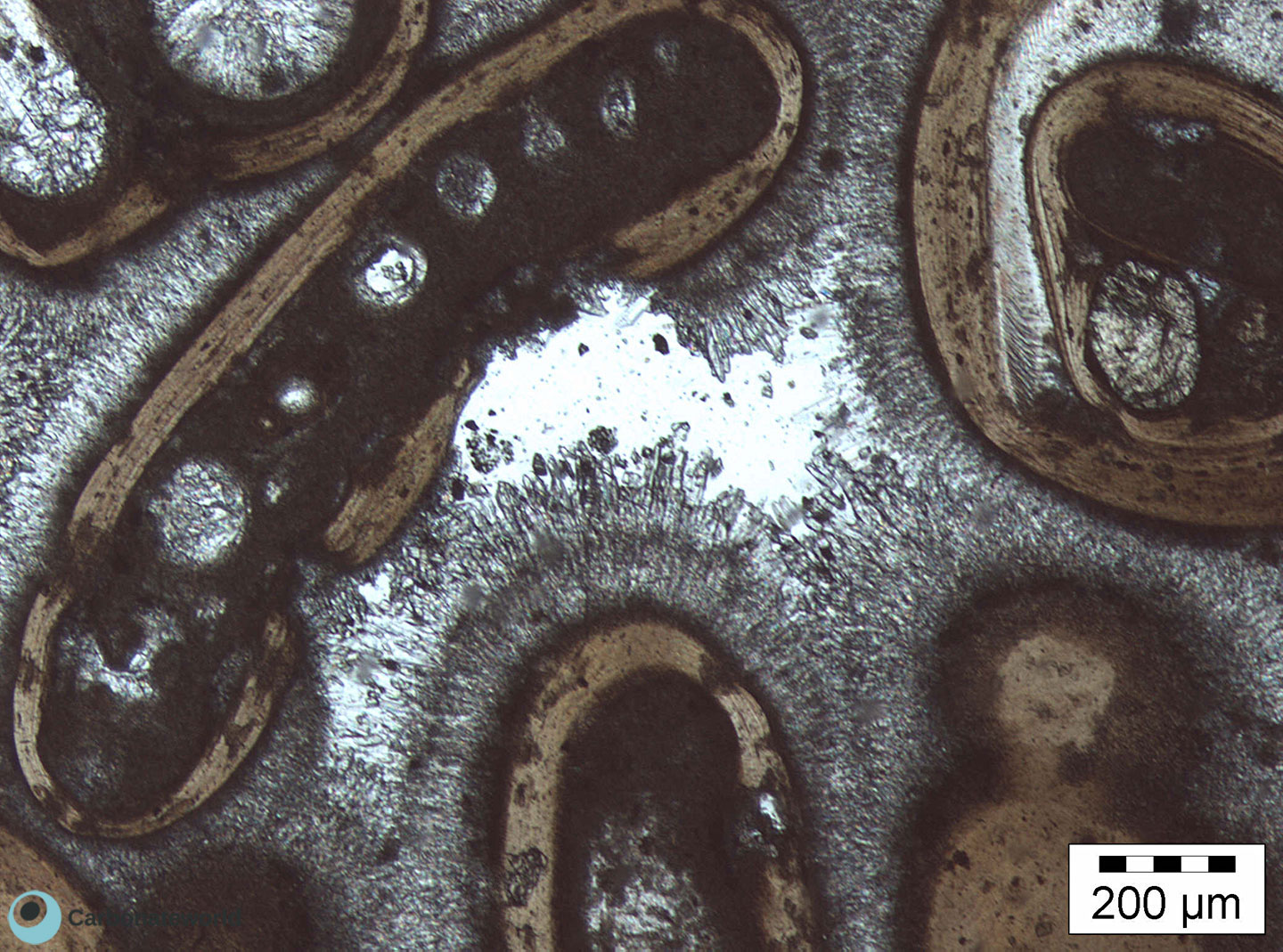

Tangential aragonitic ooid

Fibrous cement rims
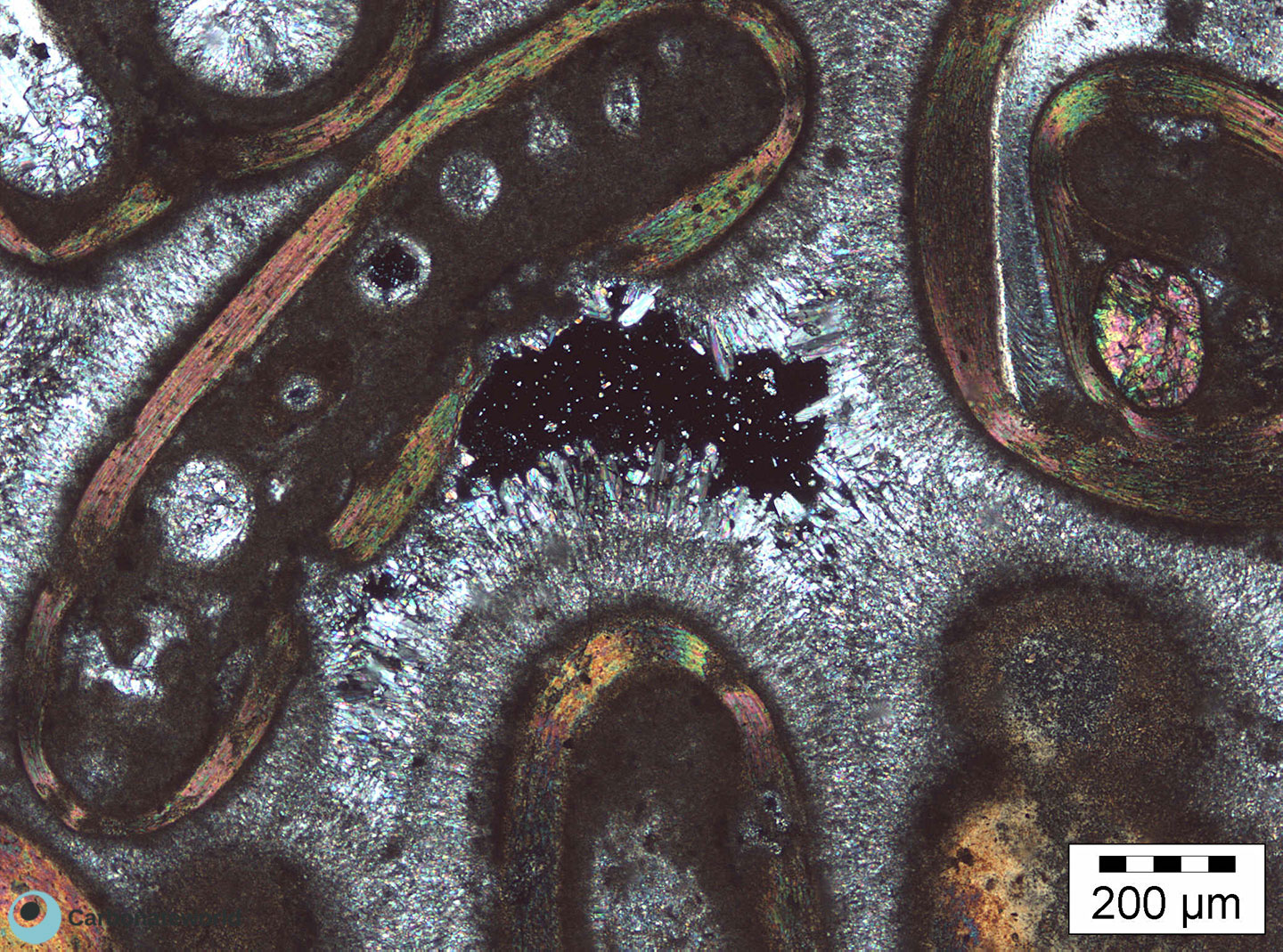

Tangential aragonitic ooid

Fibrous cement rims
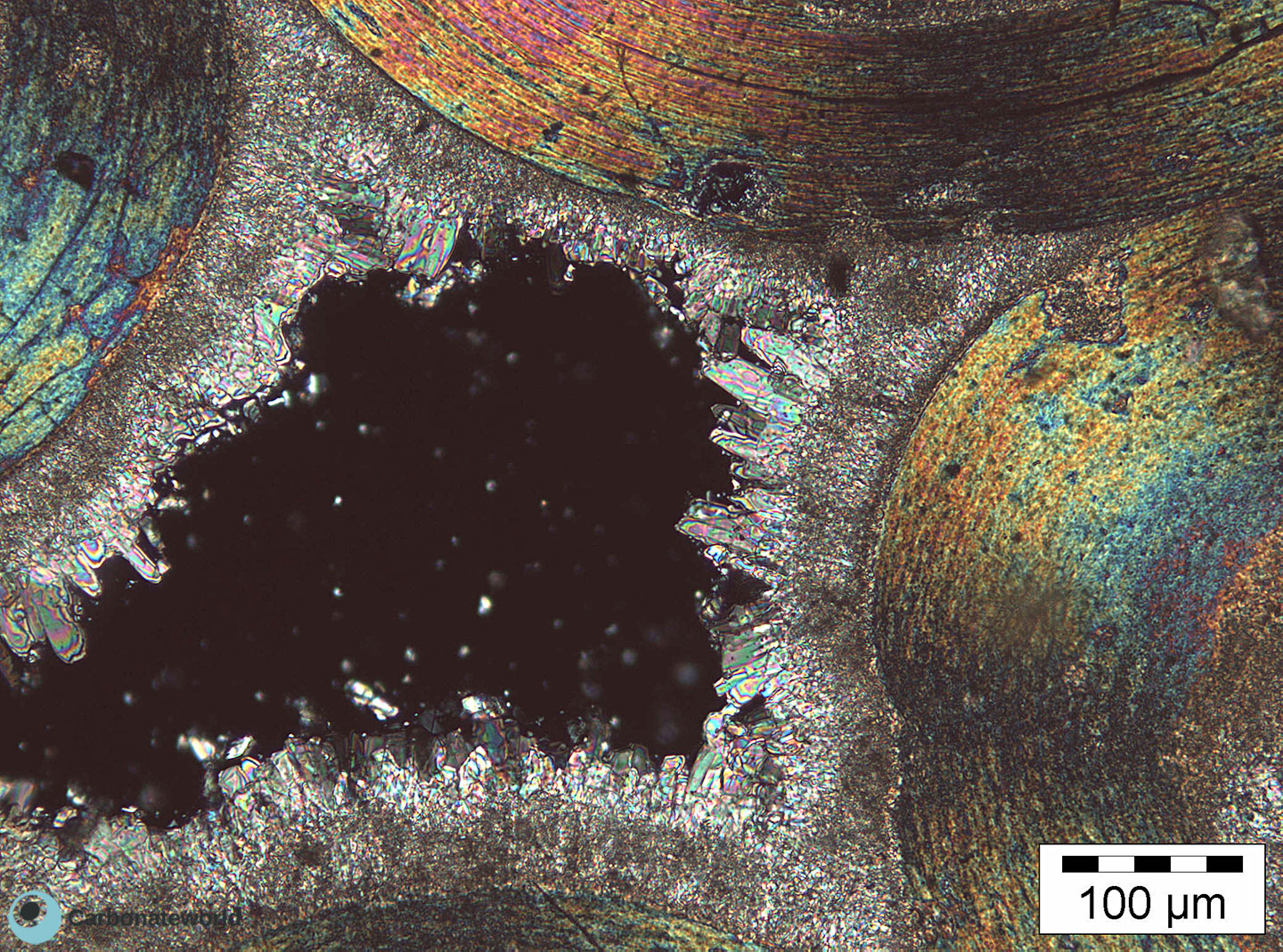

Fibrous aragonitic rims
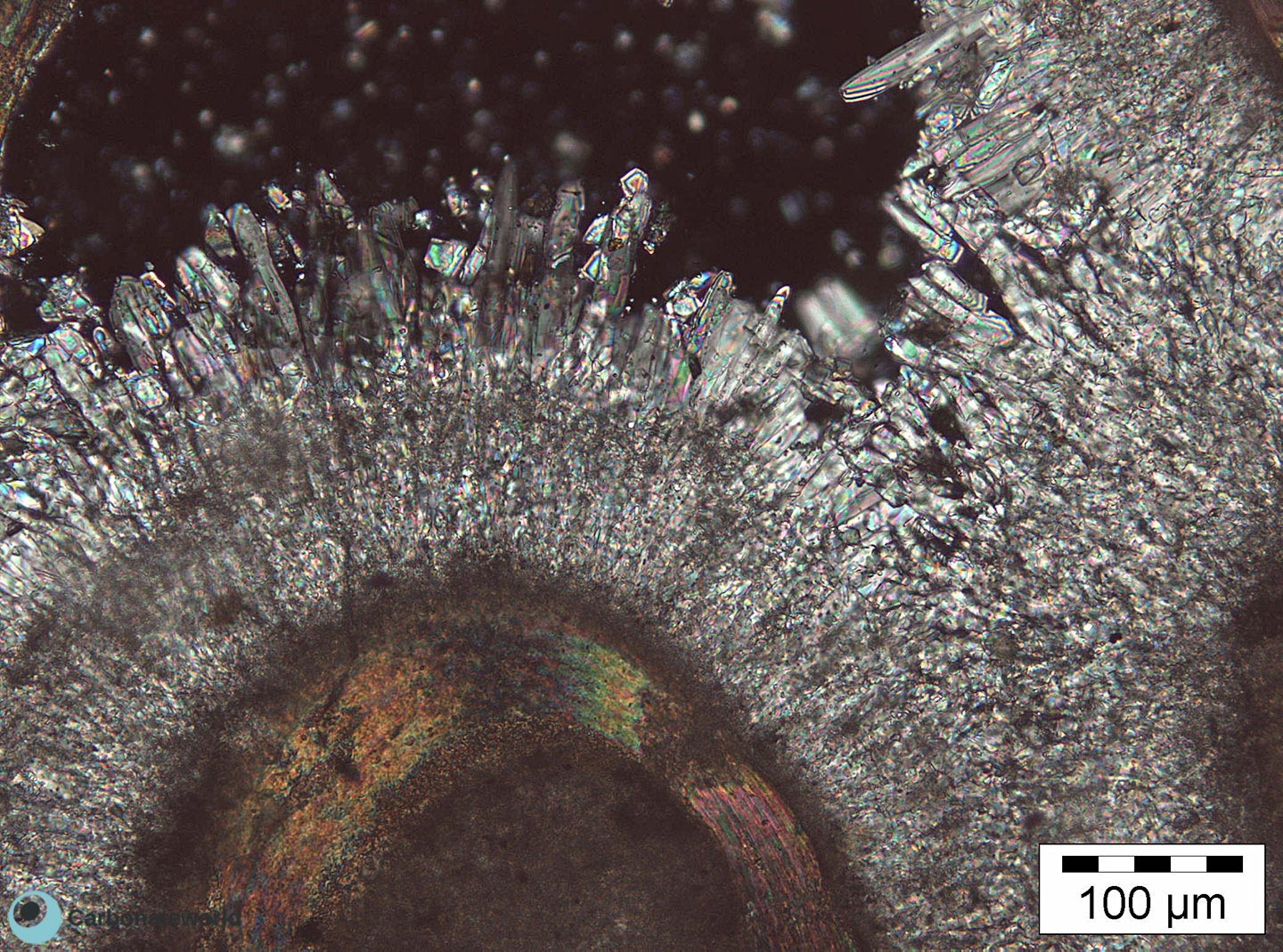
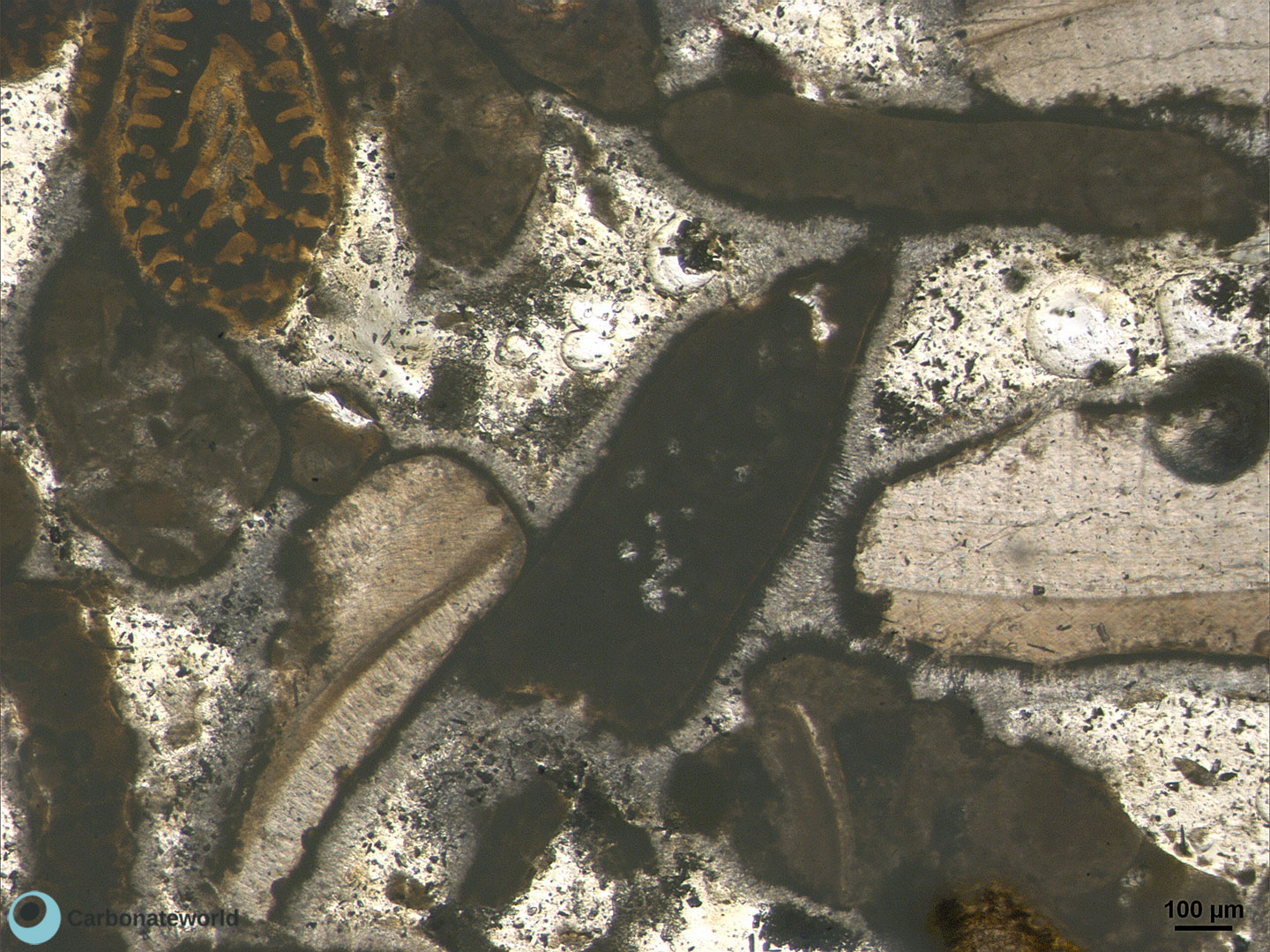

Fibrous cement rims

Archaias
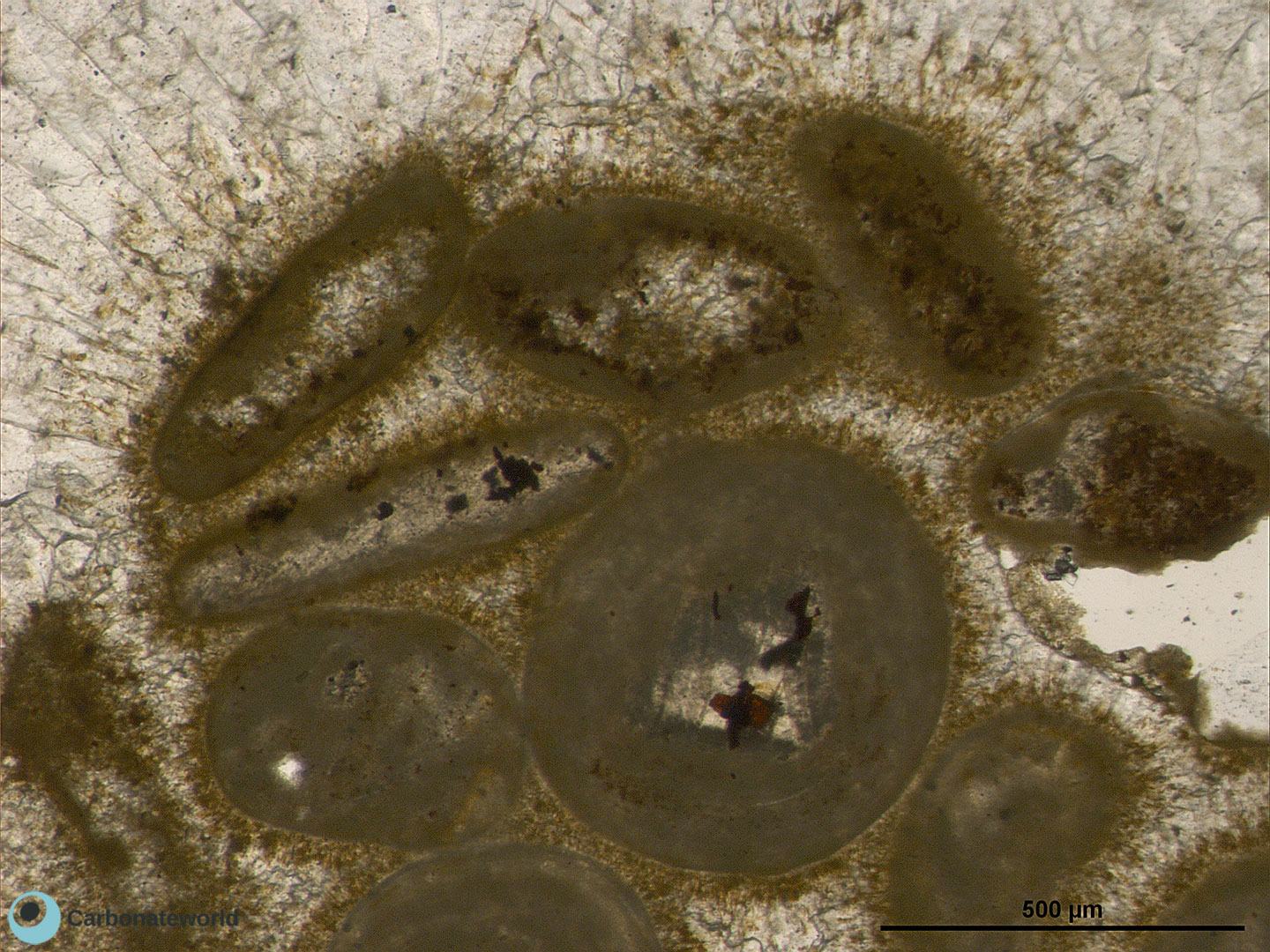
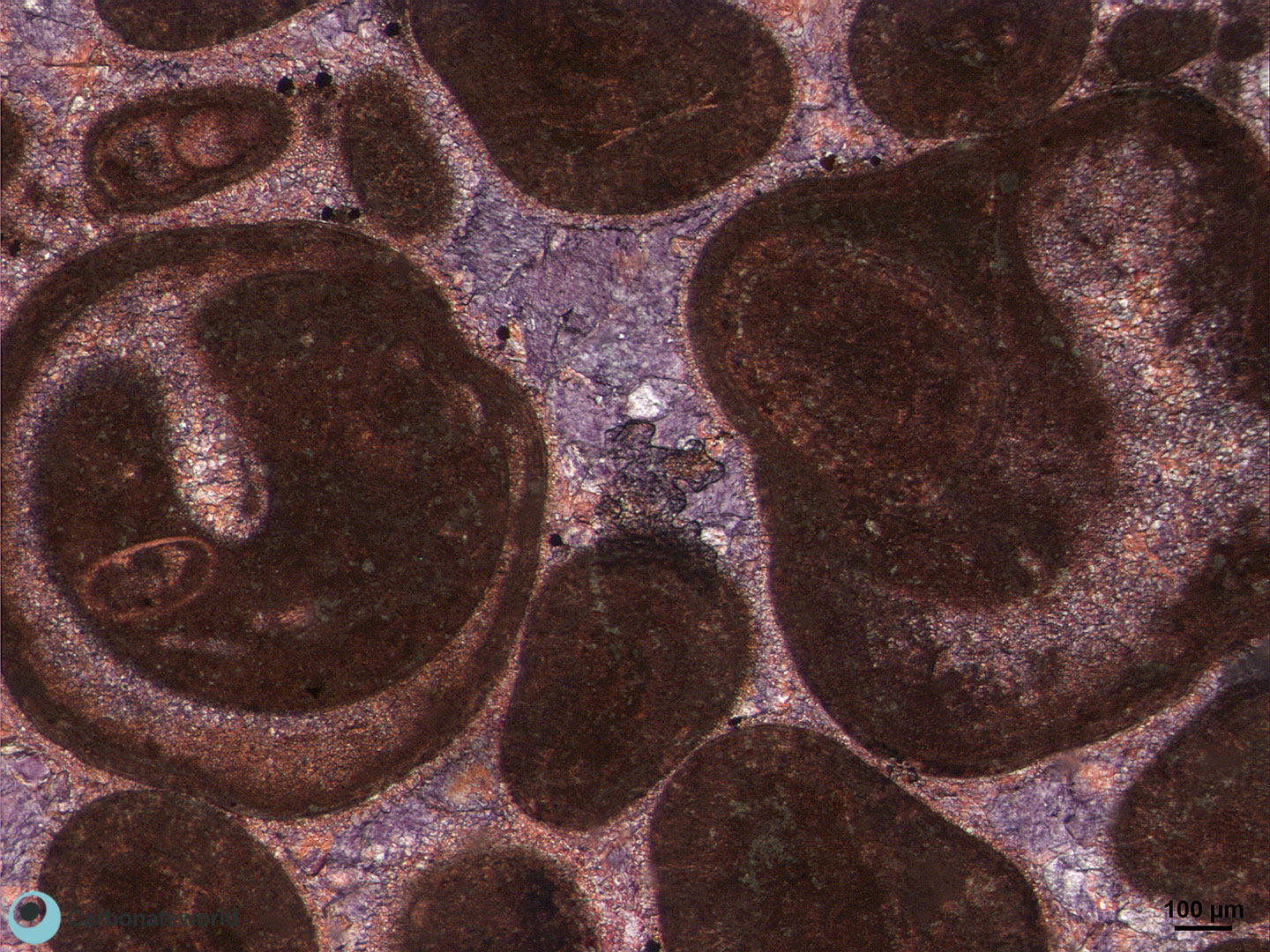

Isopachous cement rim
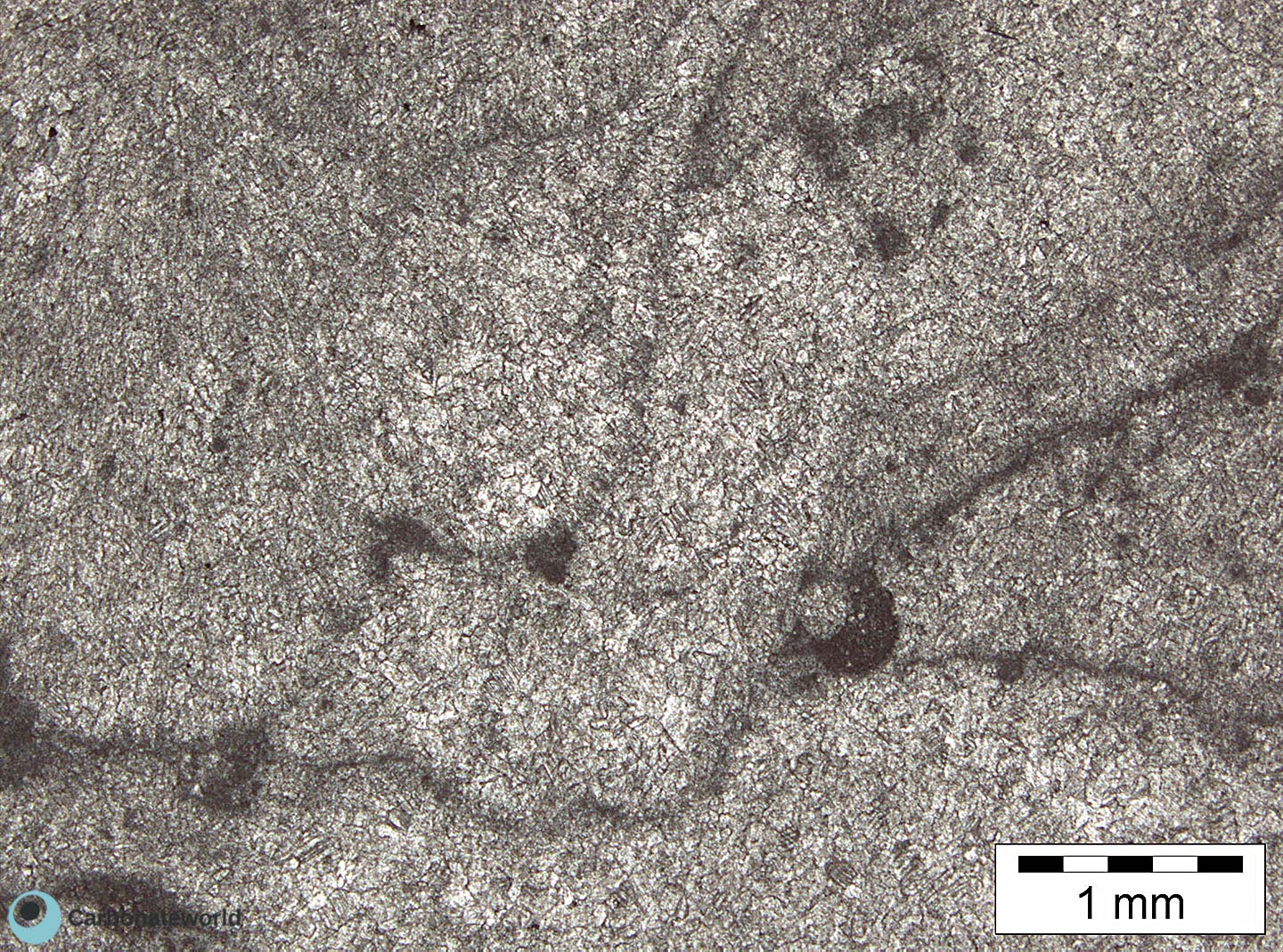

Botryoids of former aragonite

Micrite crusts
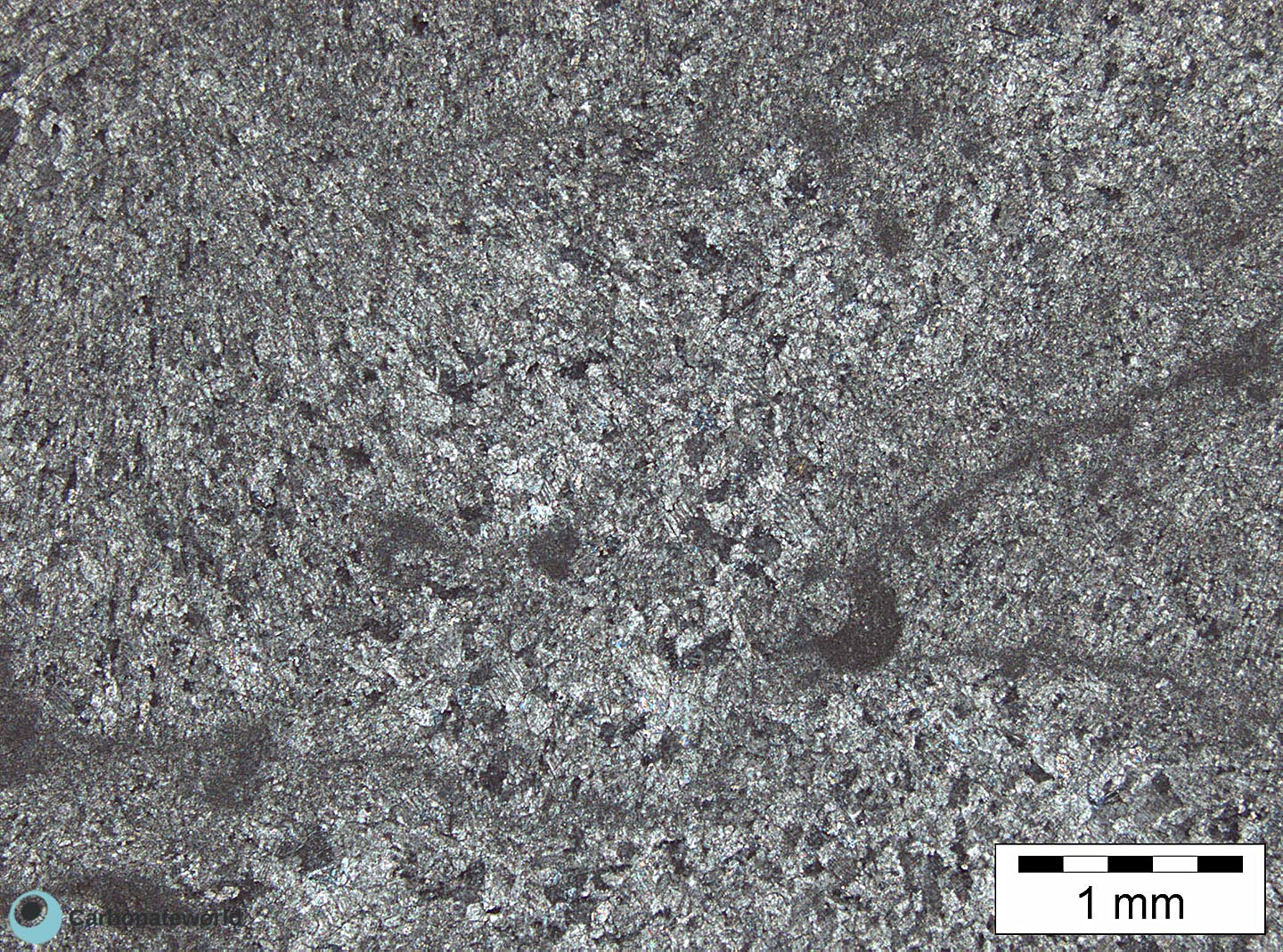
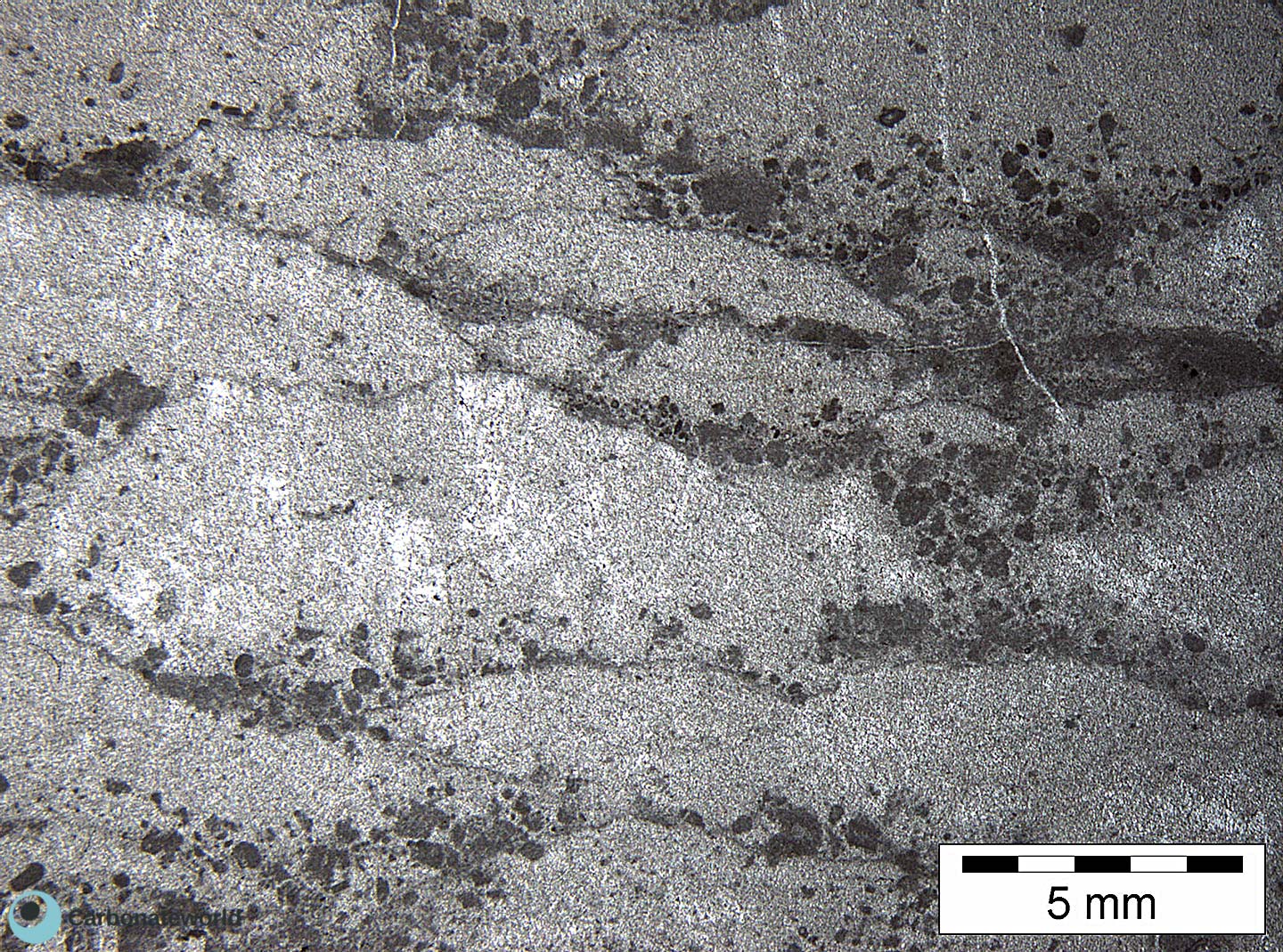

Former aragonite botryoids

Peloids and micrite crusts
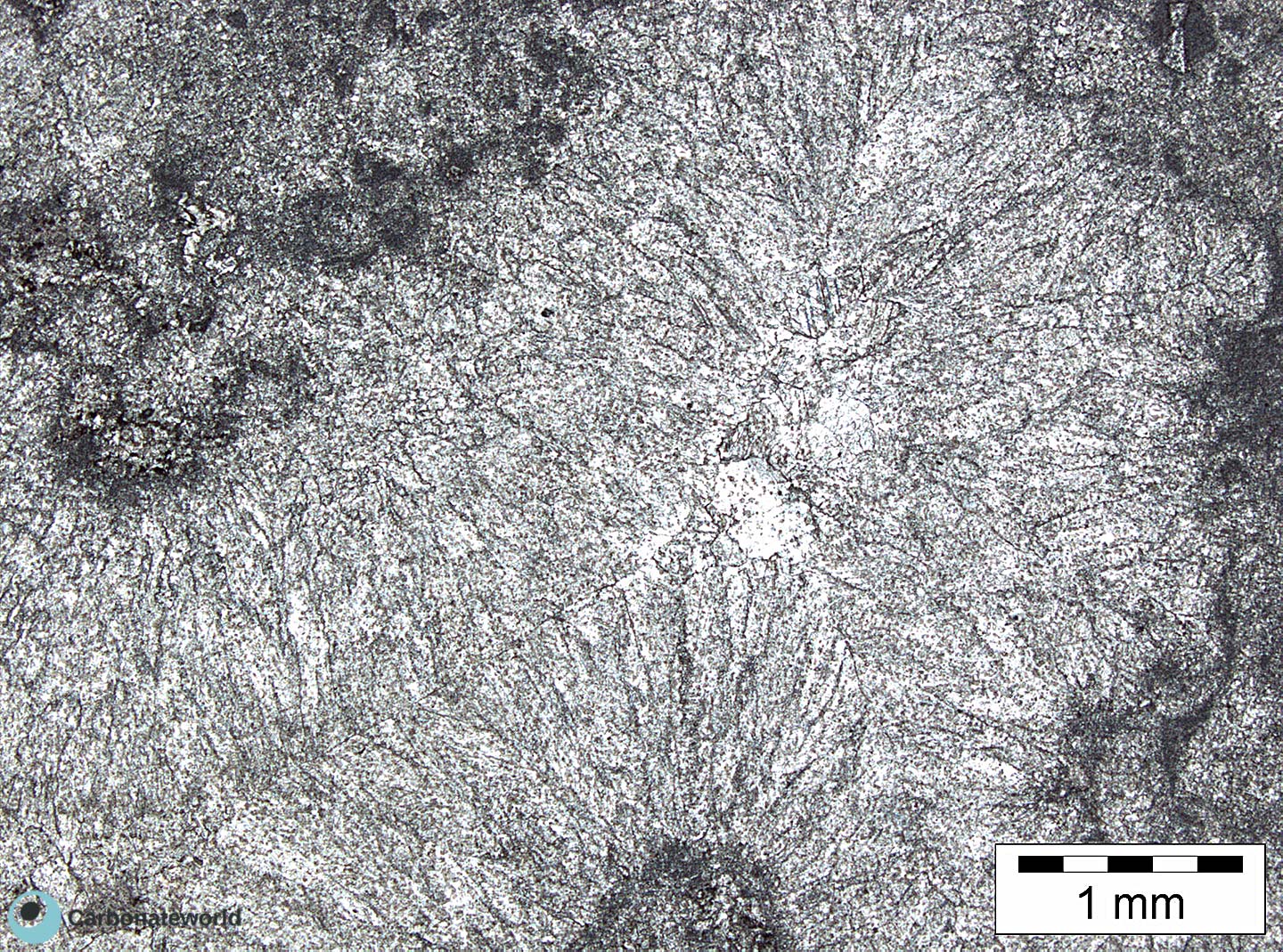

Radiaxial fibrous calcite
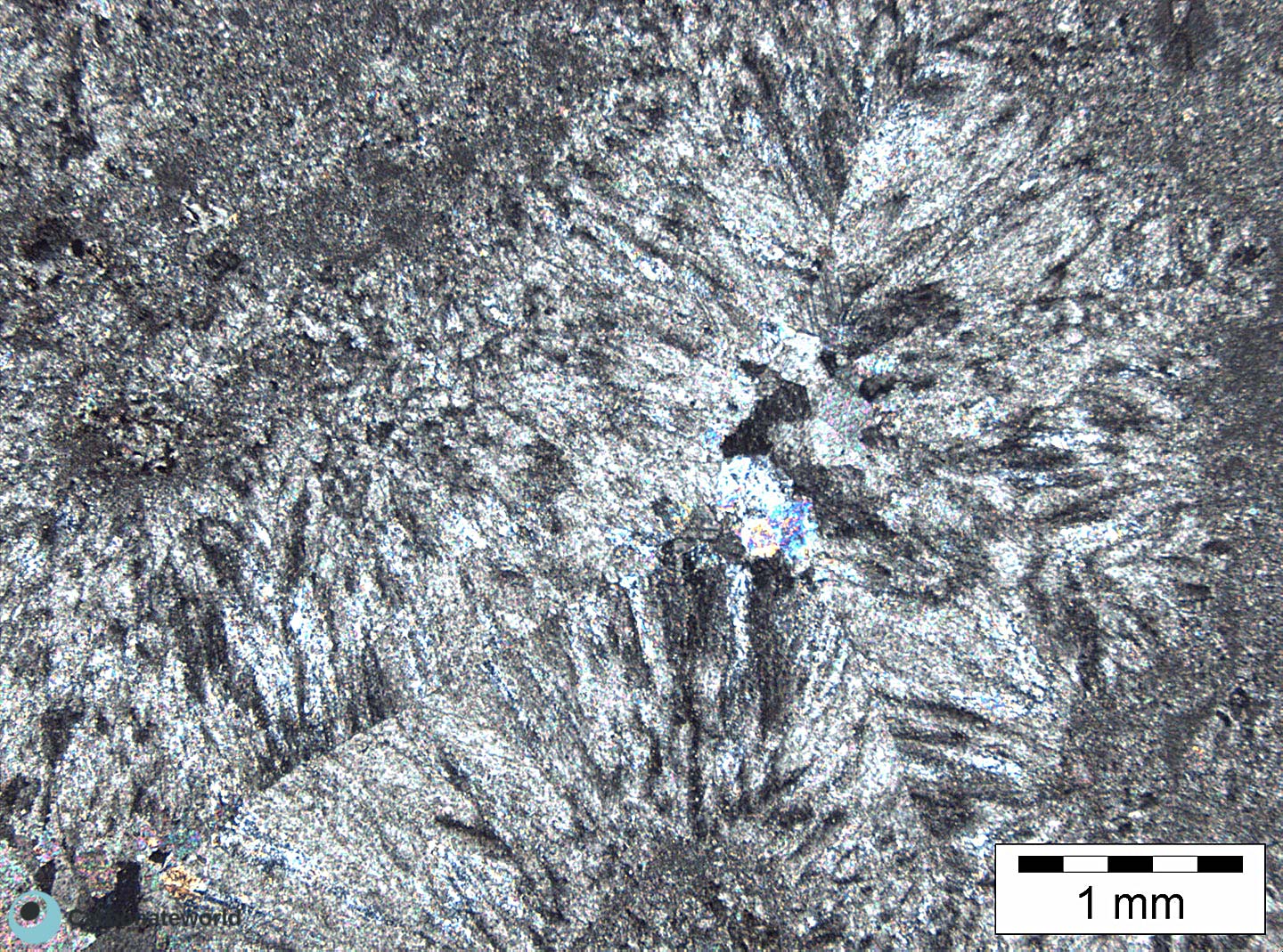

Radiaxial fibrous calcite
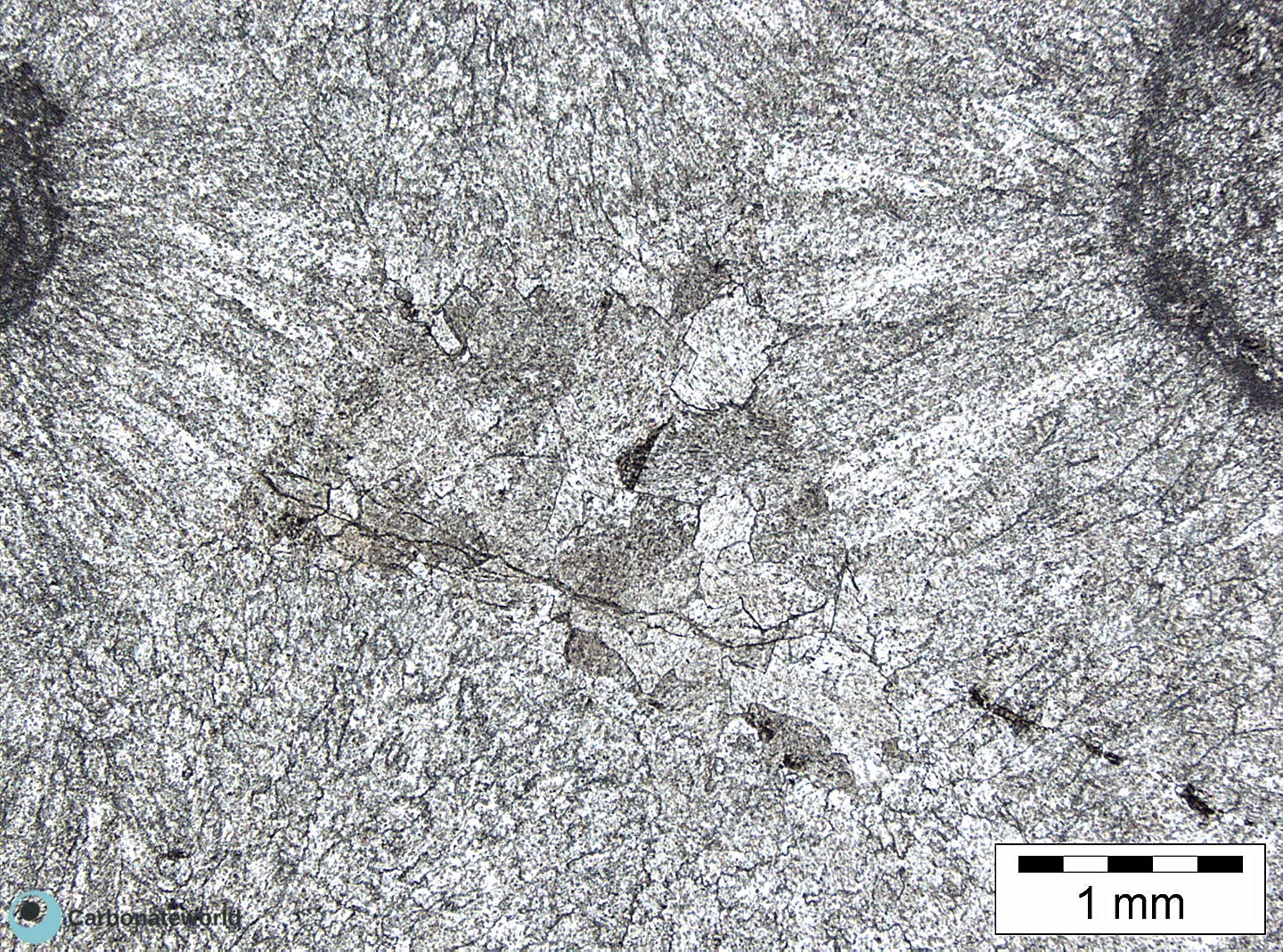

Radial fibrous cement

Equant calcite mosaic
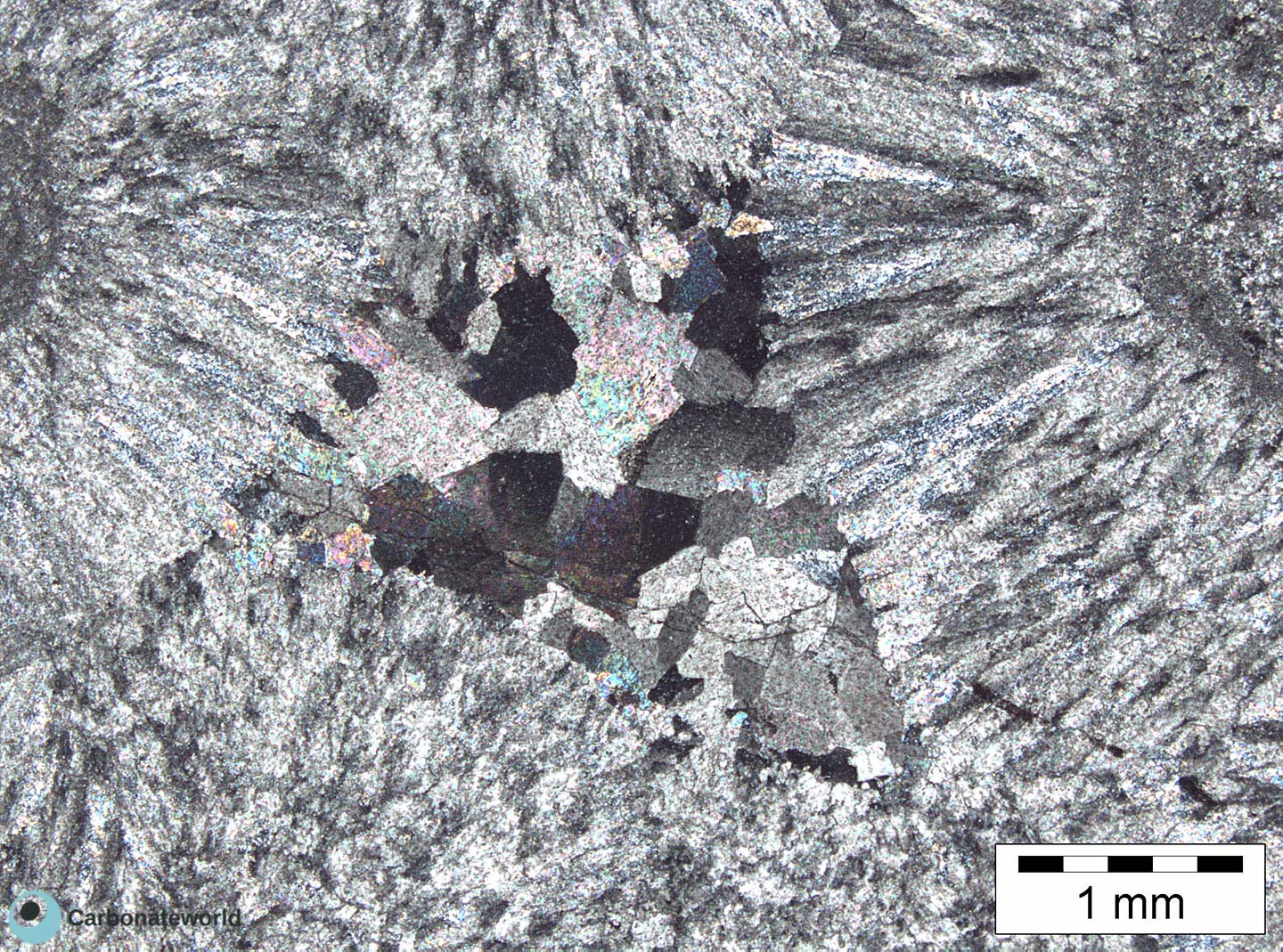

Radial fibrous cement

Equant calcite mosaic
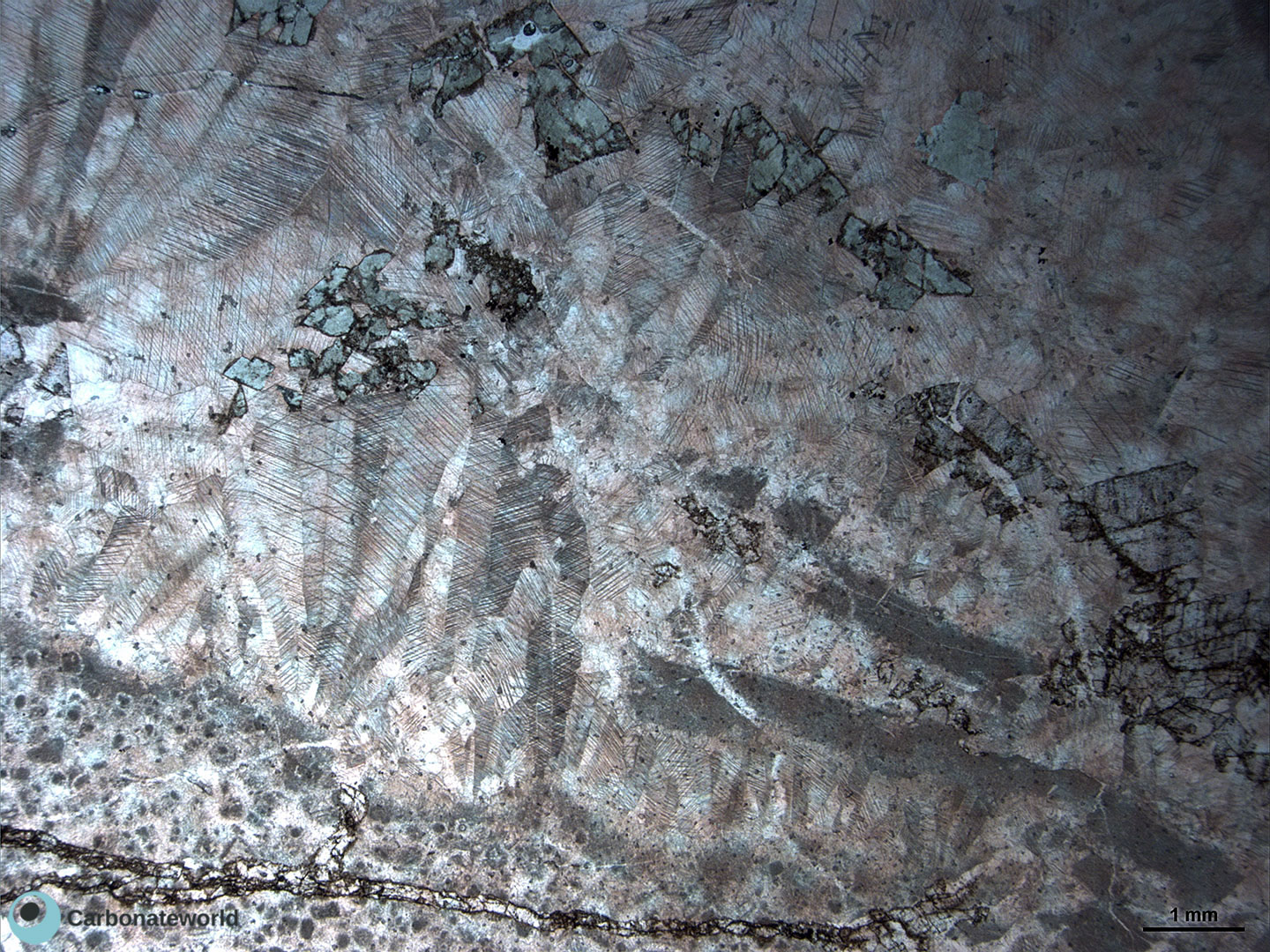

Clotted peloidal micrite

Radiaxial fibrous calcite

Radiaxial fibrous calcite
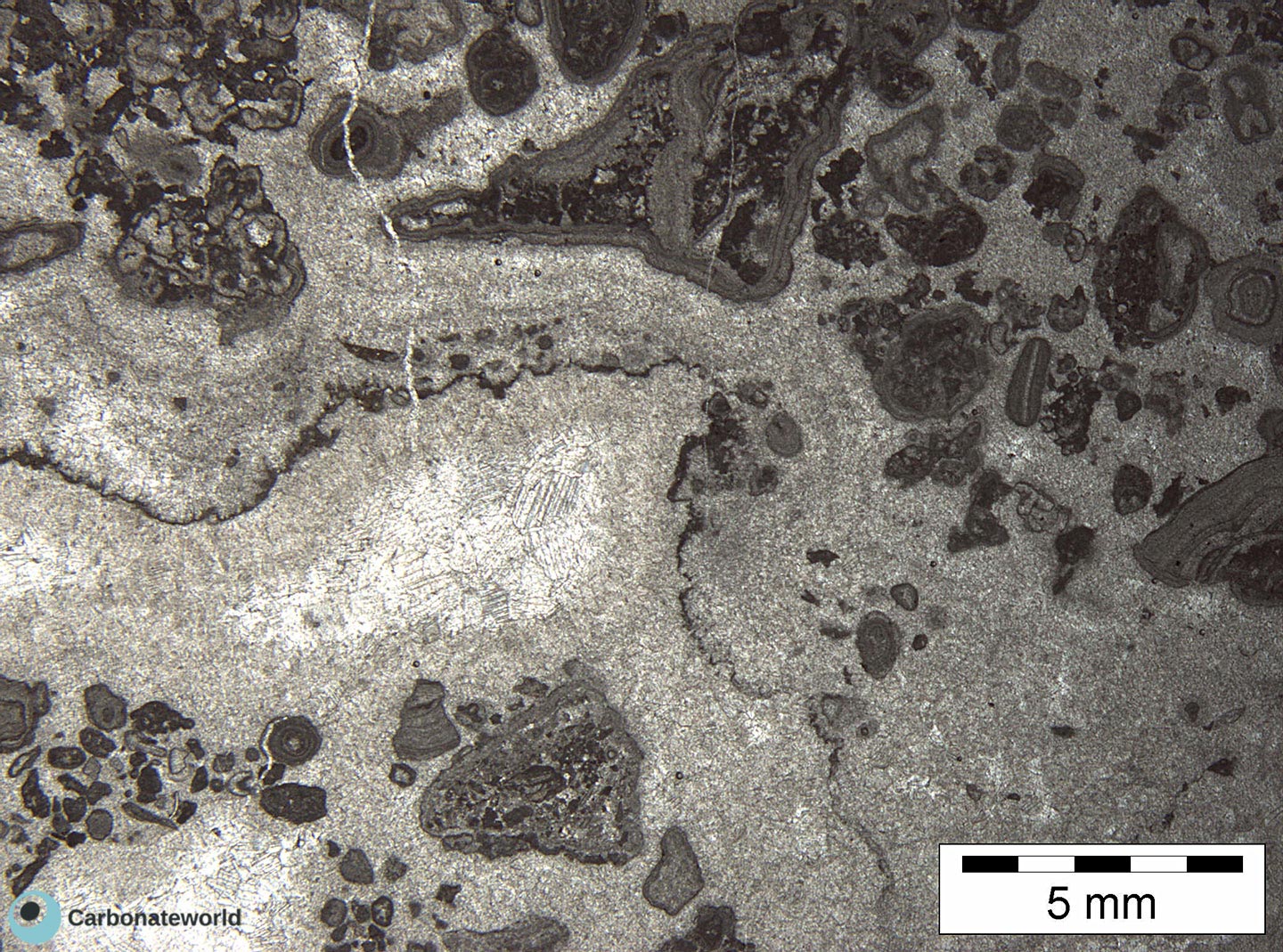

Pisoid

Micrite crust lining fibrous cement
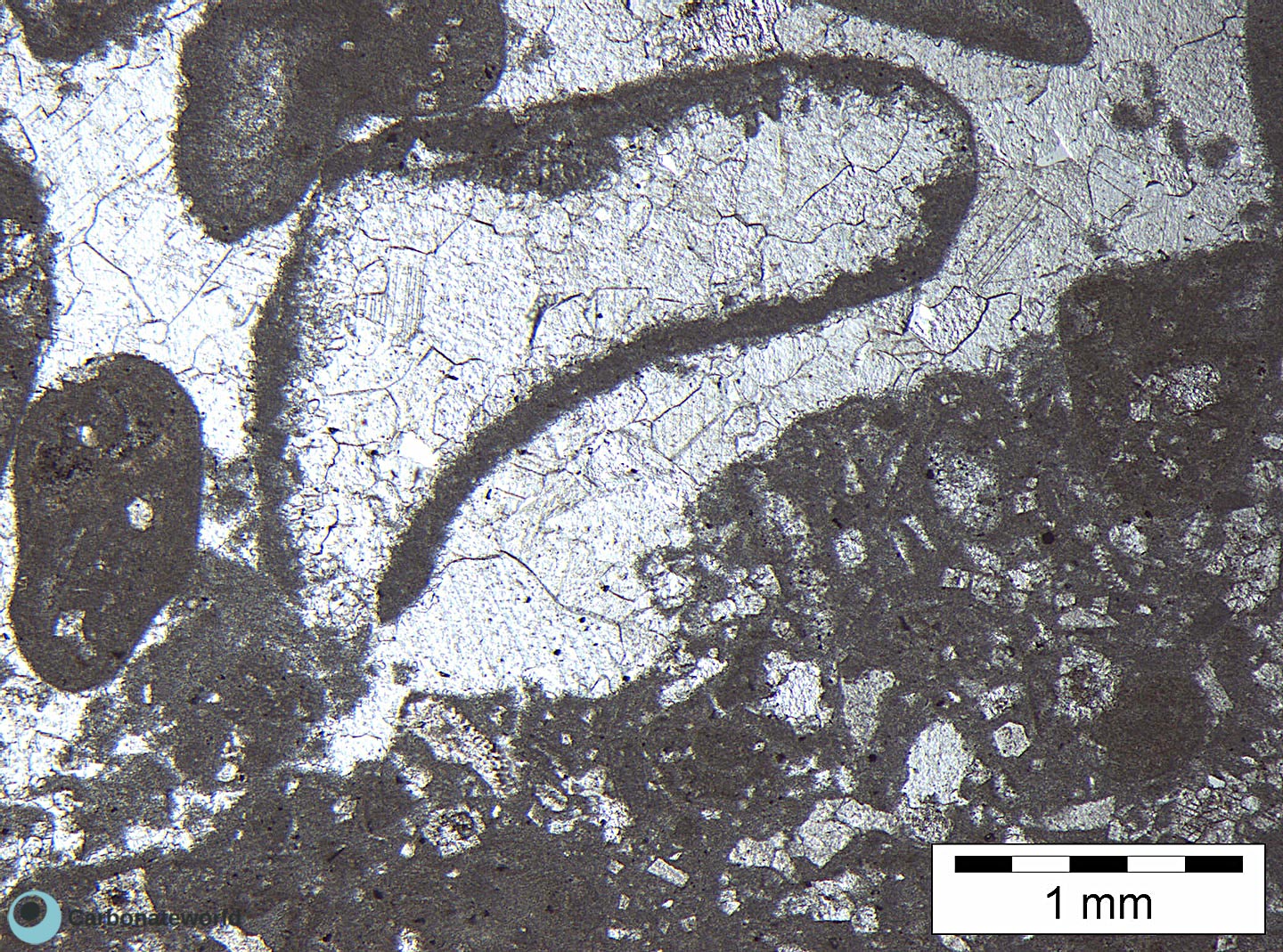

Micrite envelope

Calcite spar after aragonite dissolution
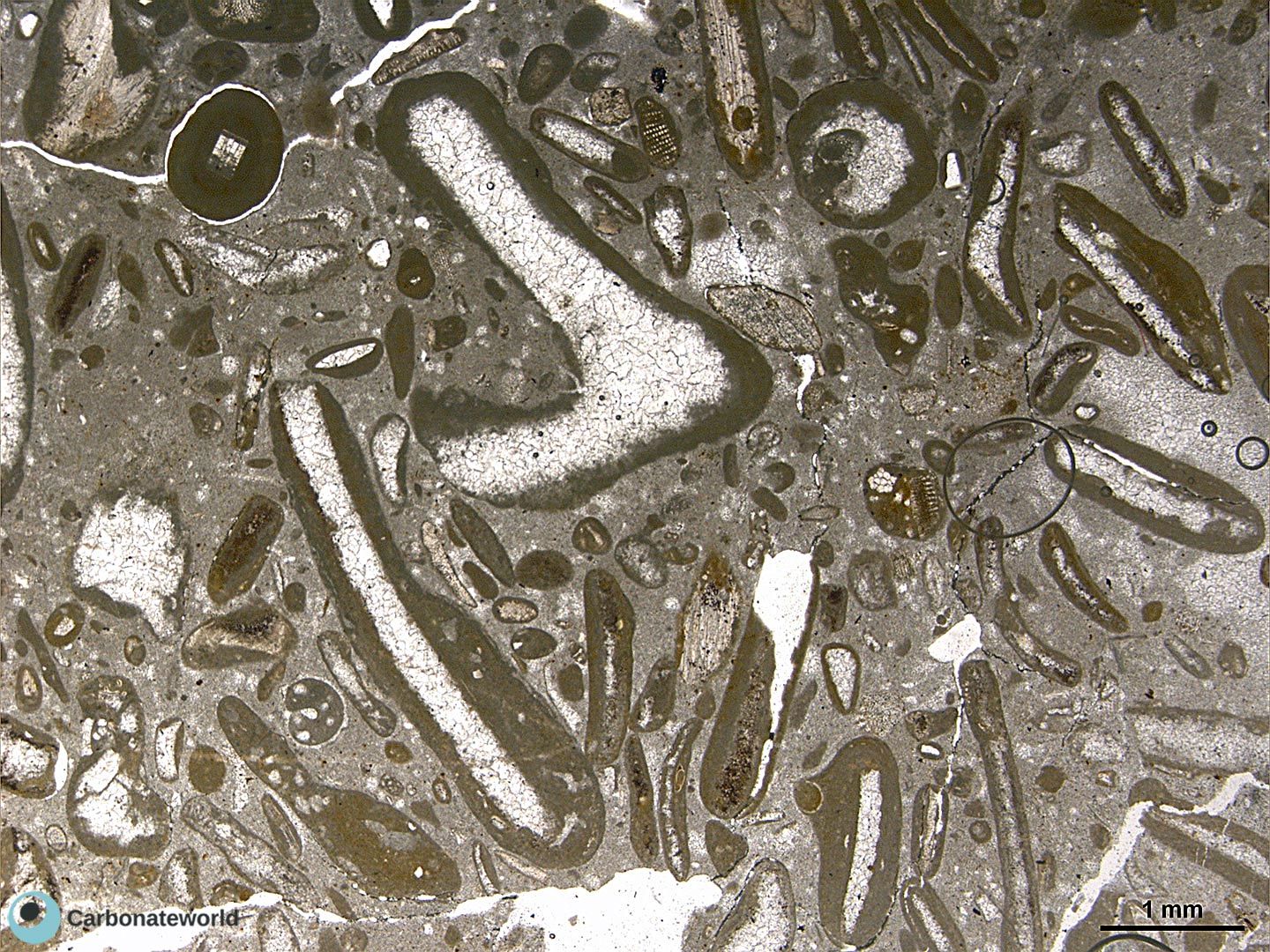

Micrite envelope
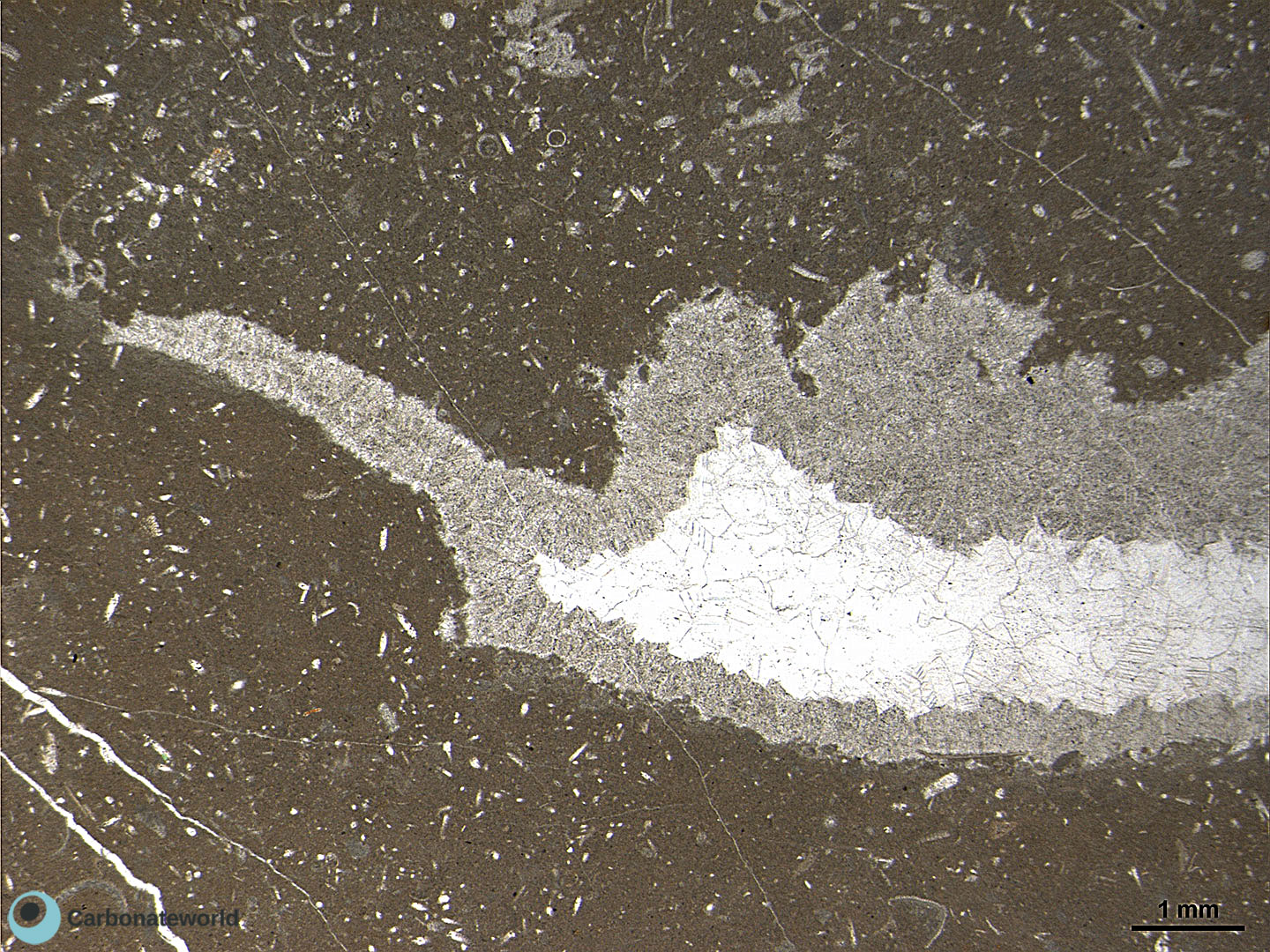

Radiaxial fibrous cement in stromatactis
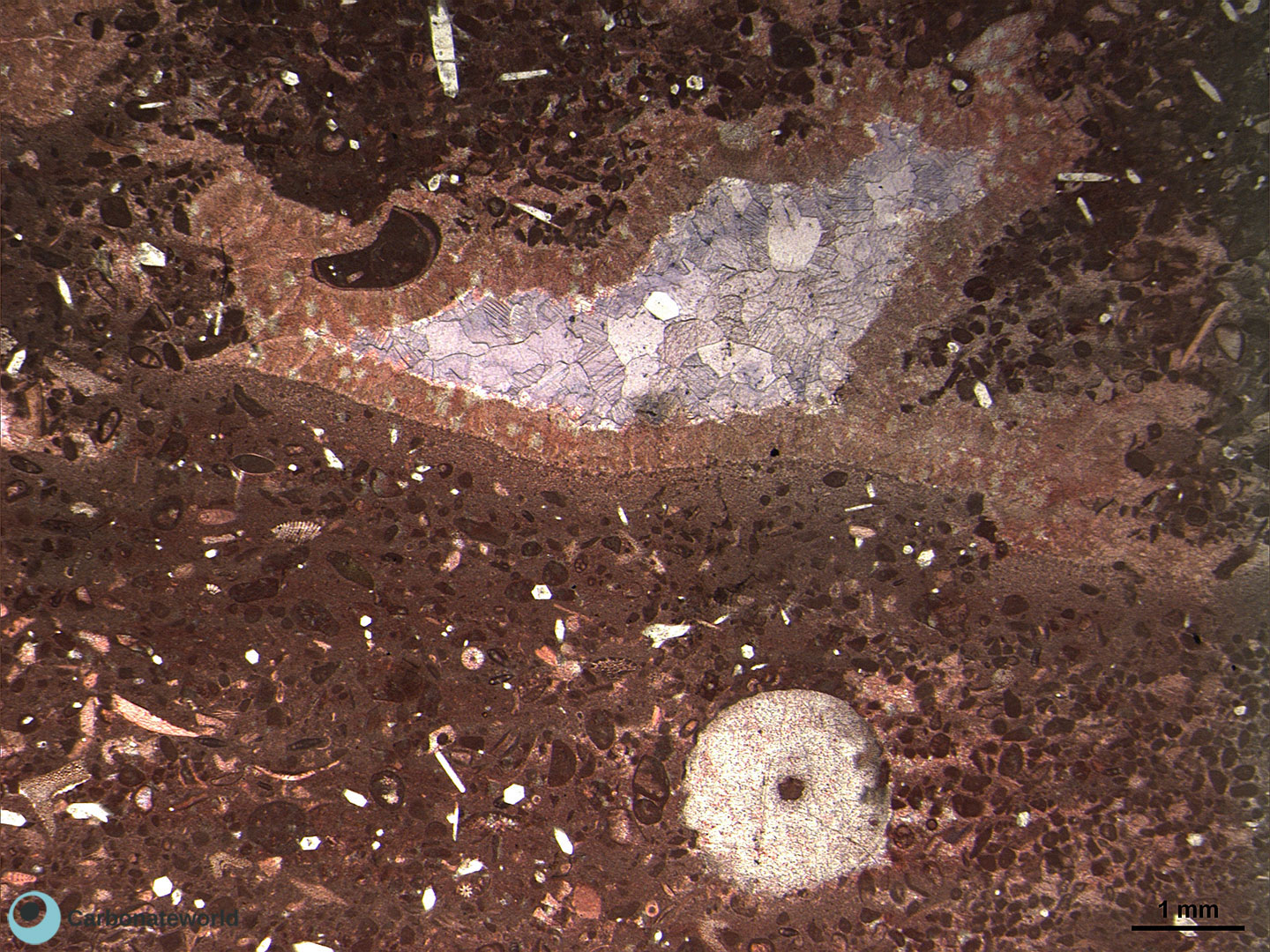

Non ferroan fibrous cement

Ferroan equant calcite
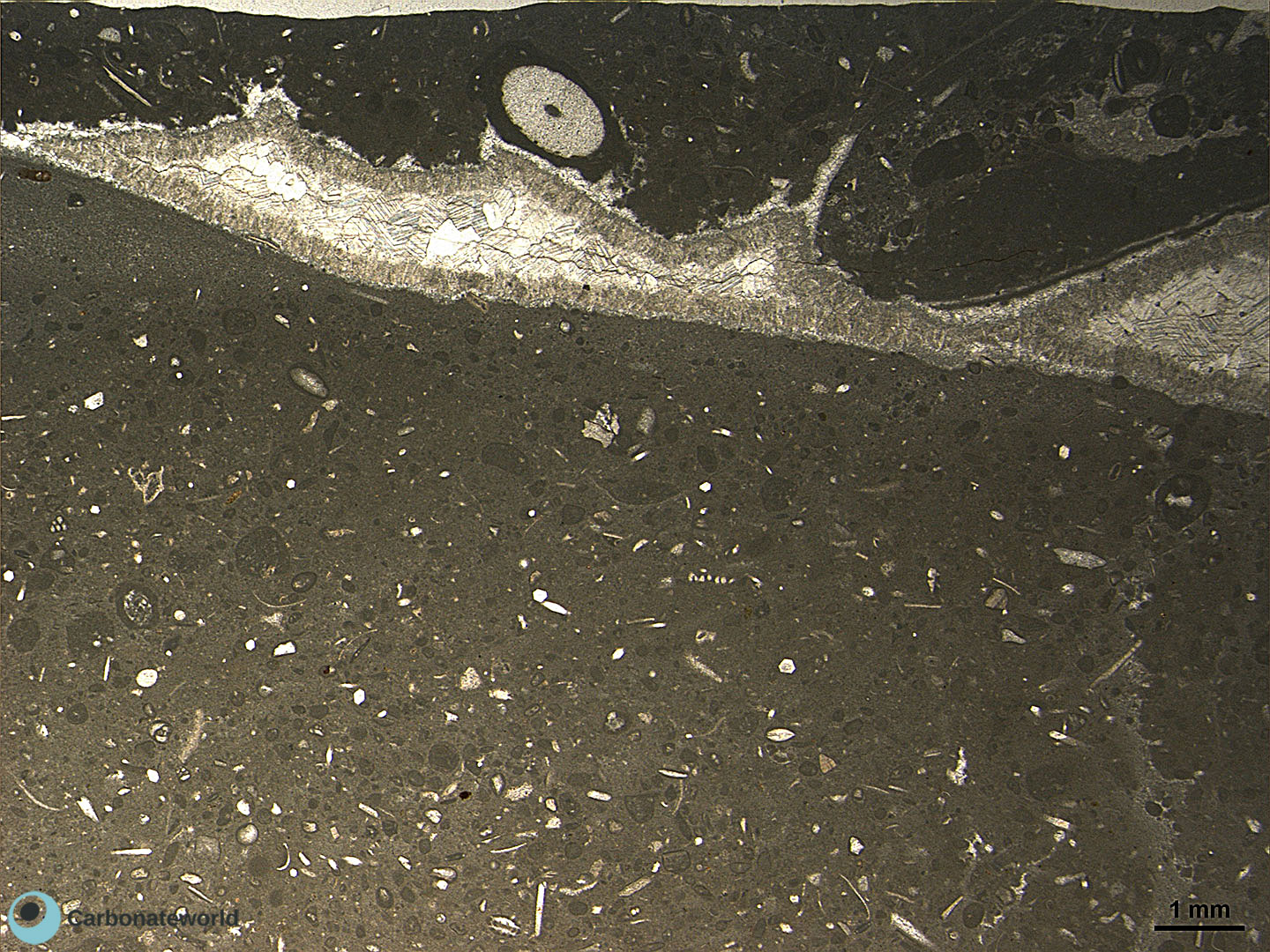

Stromatactis
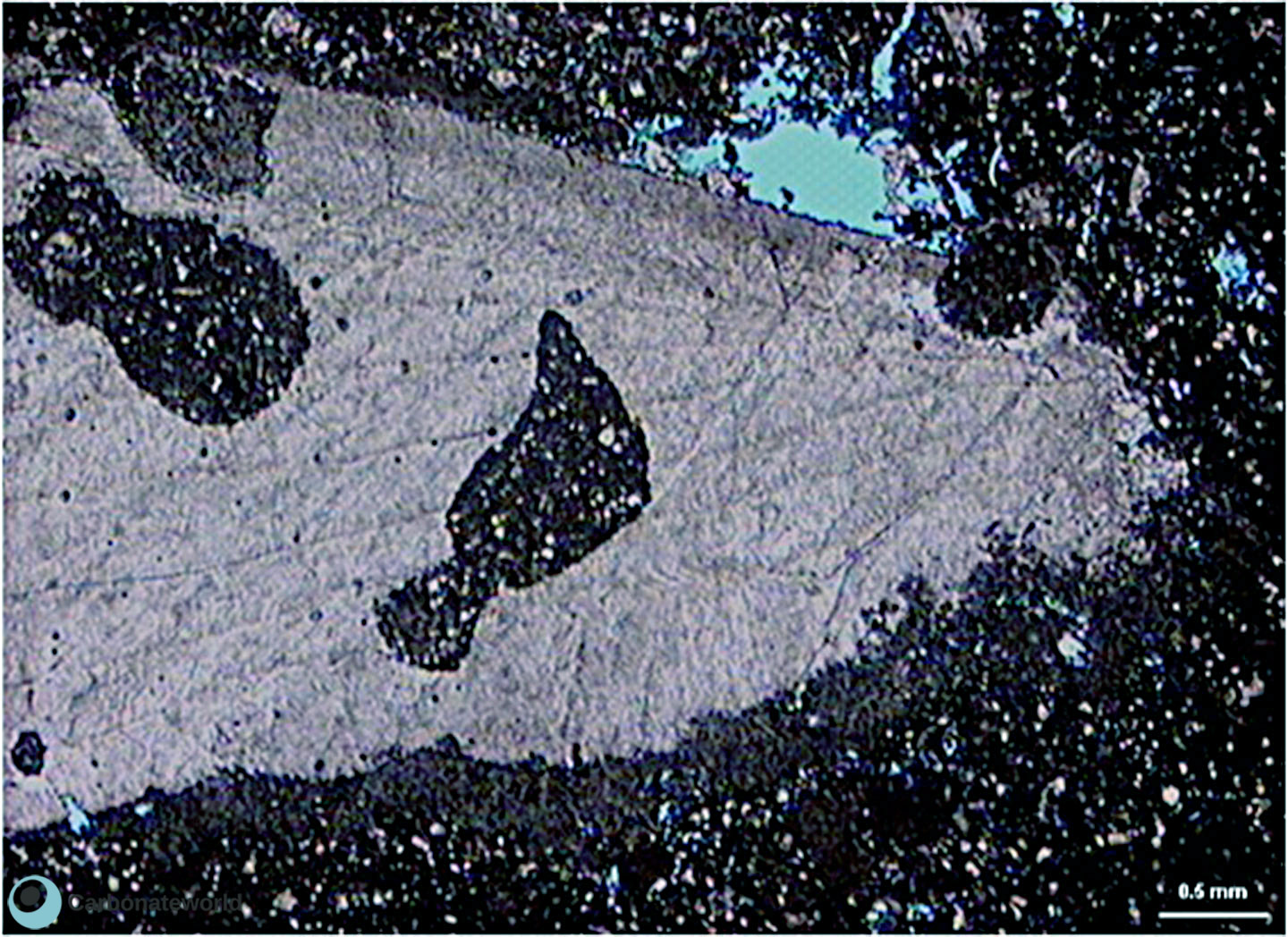

Boring

Micrite envelope
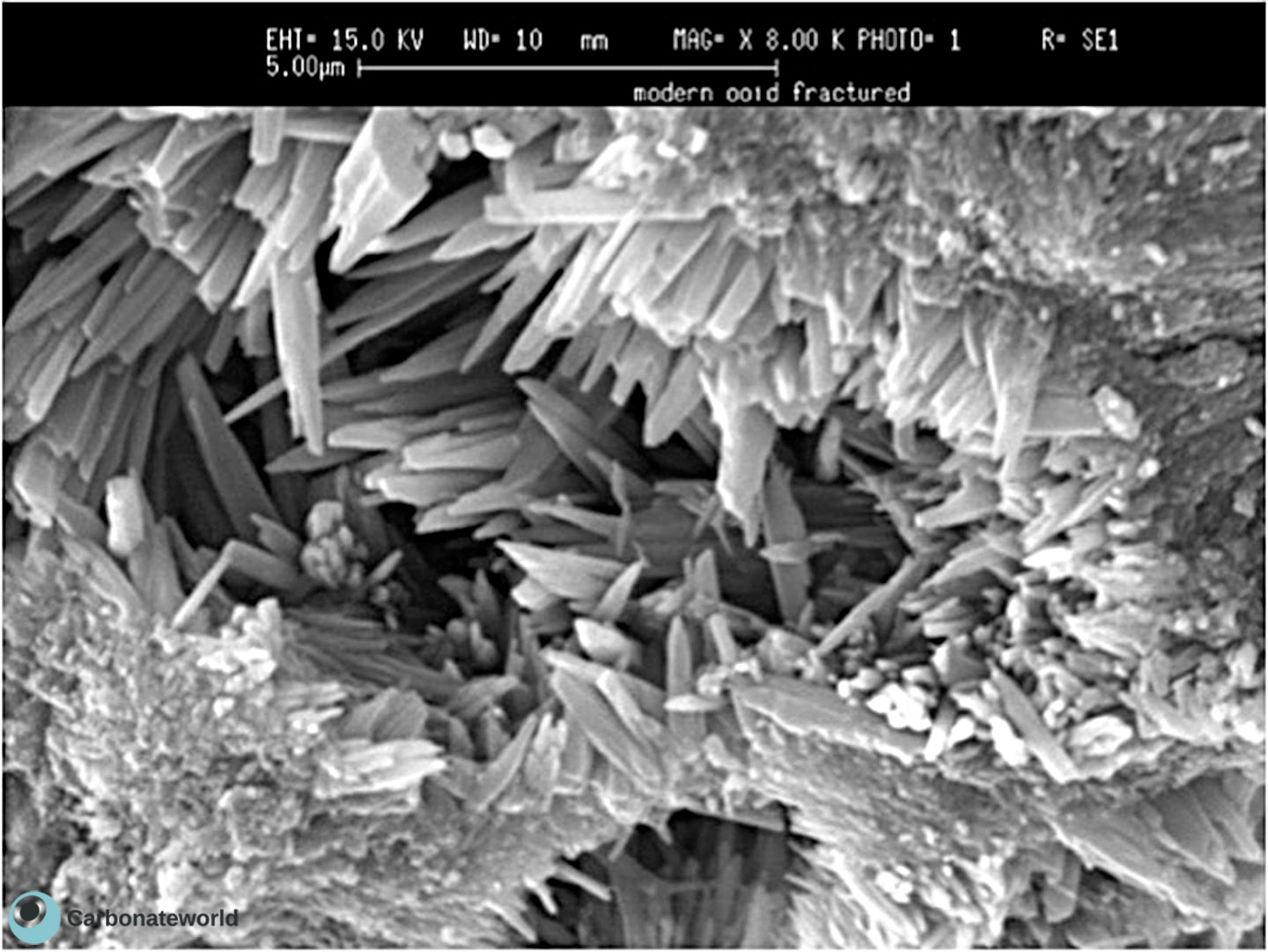

Aragonite crystals
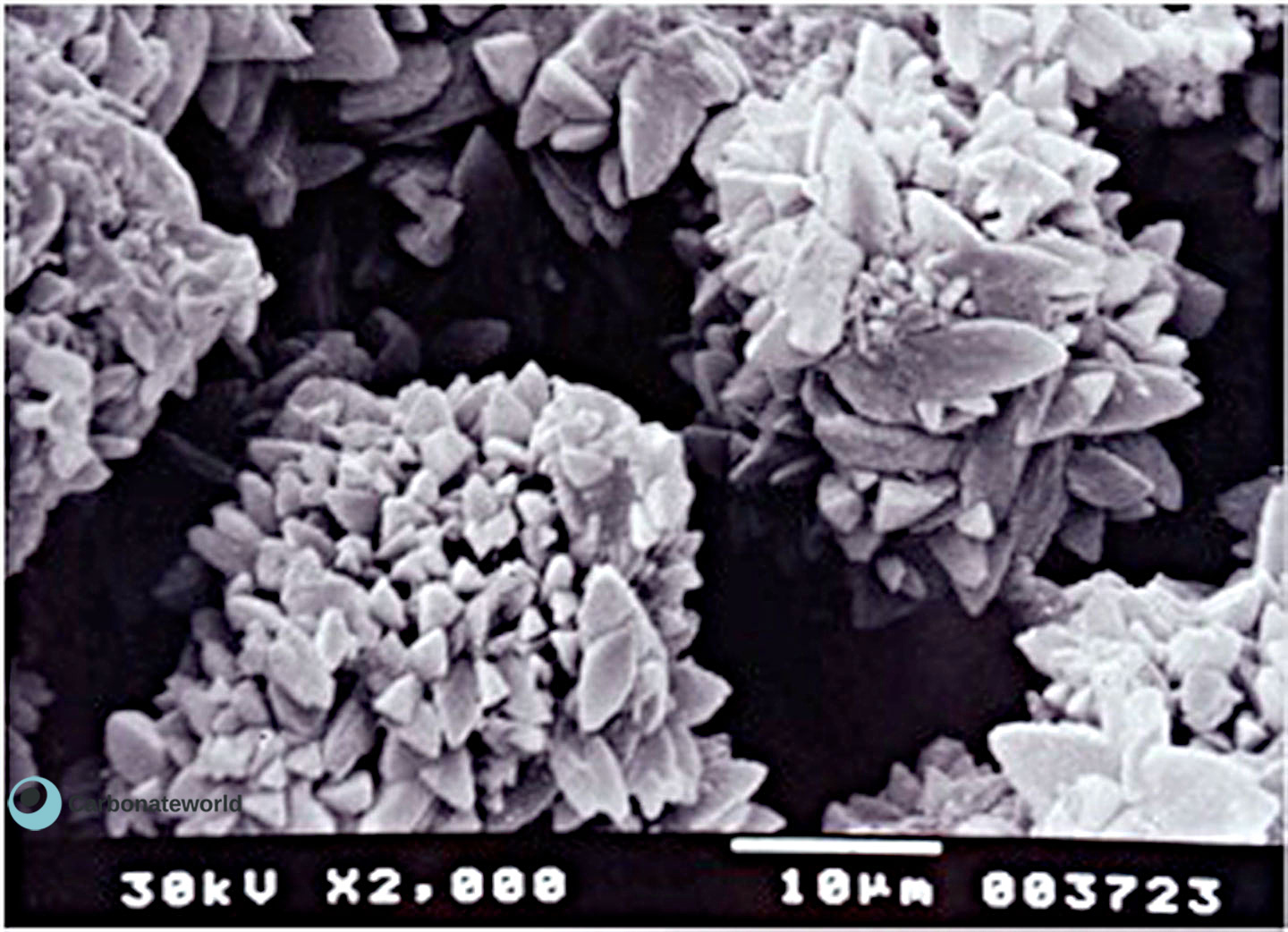

Calcite cement
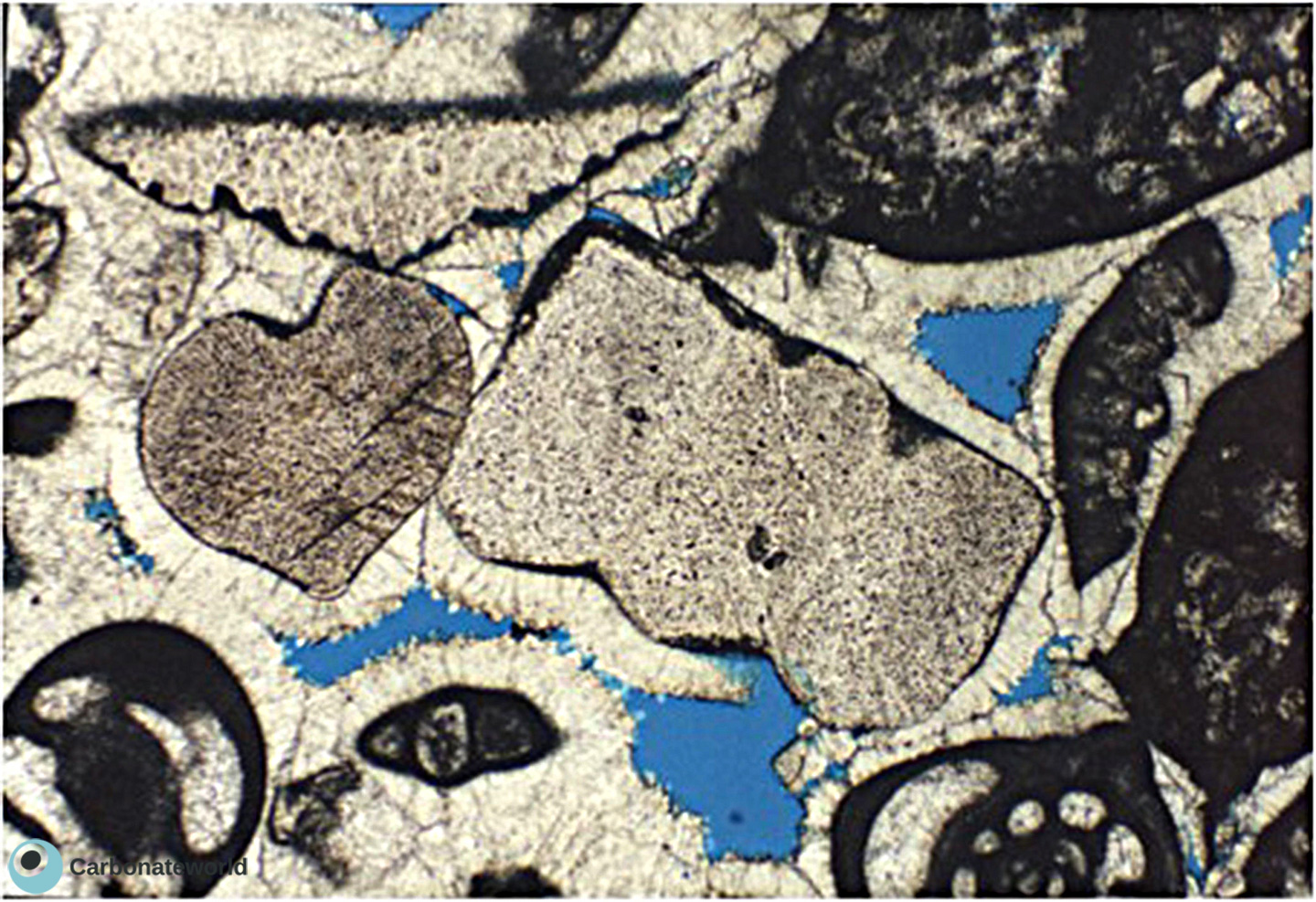

Isopachous fibrous cement
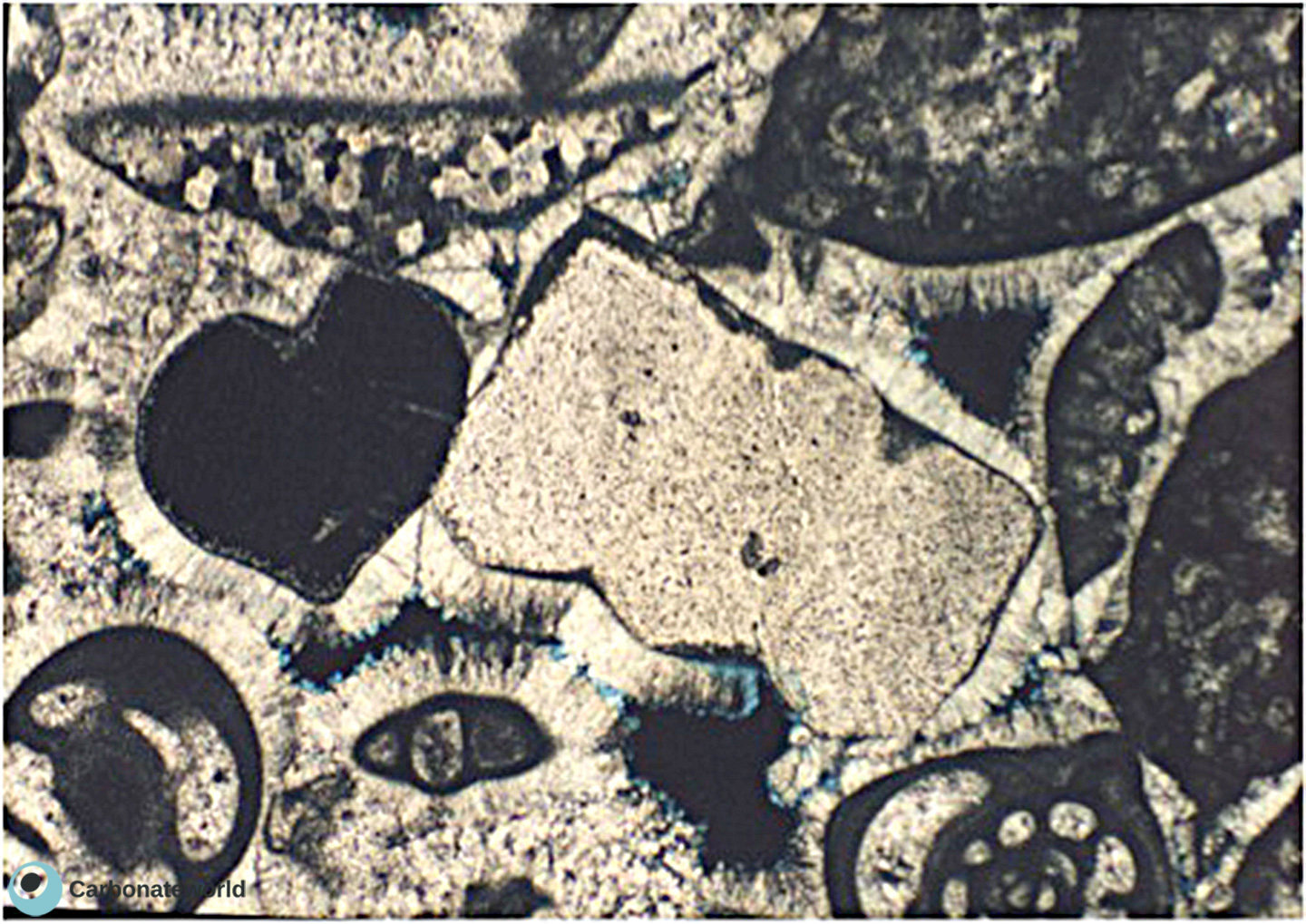

Isopachous fibrous cement
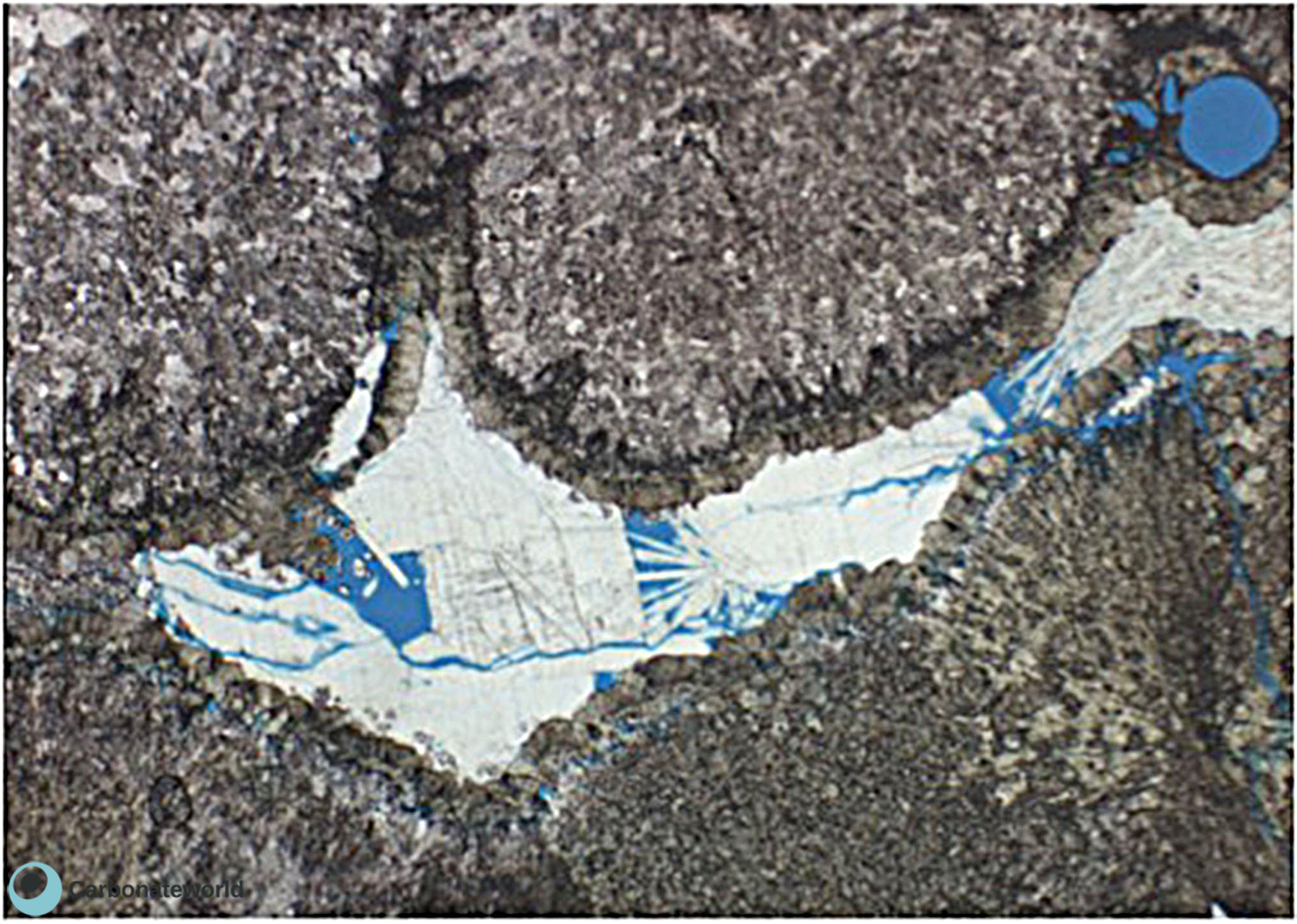

Botryoidal aragonite

Isopachous cement

Anhydrite
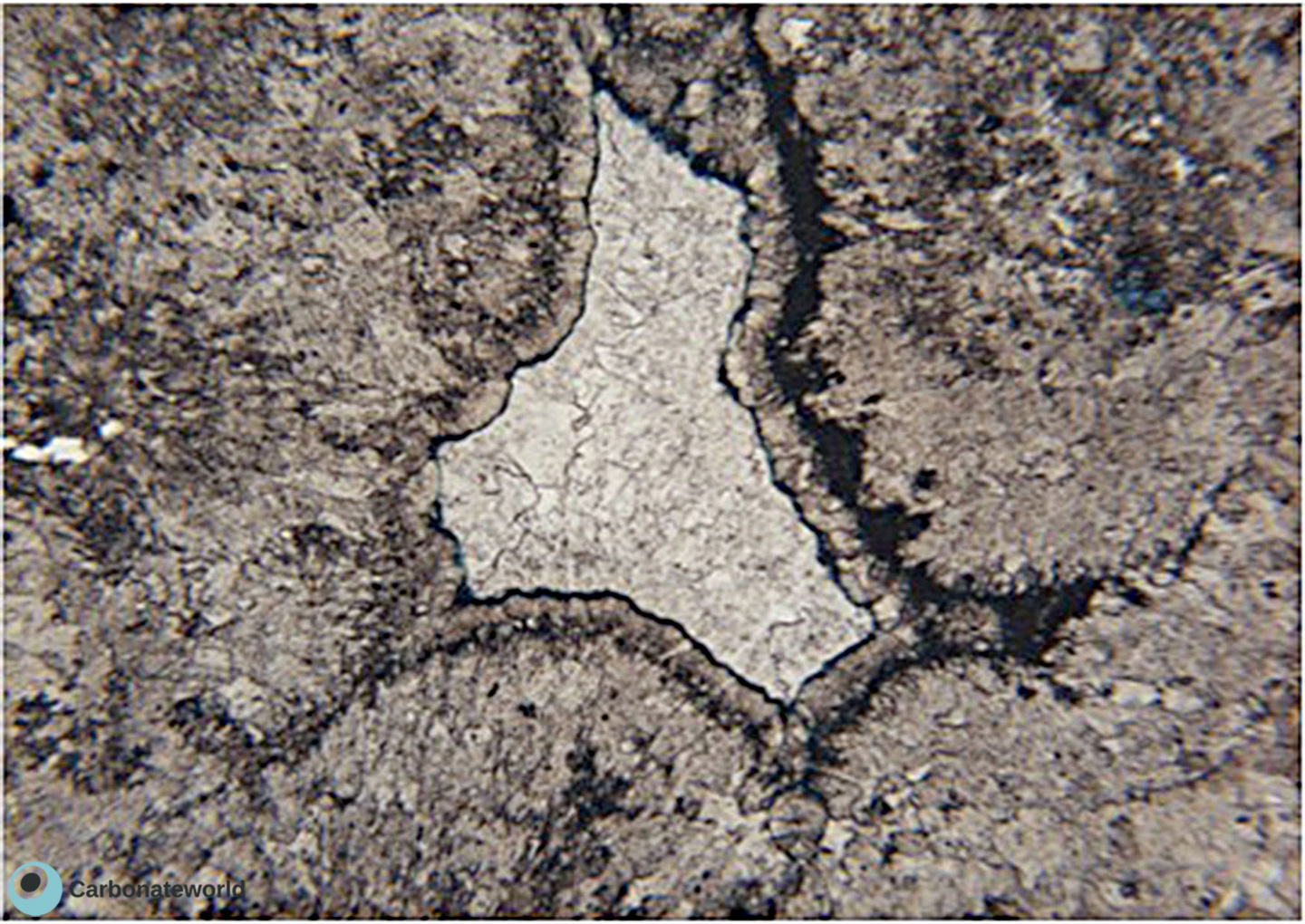
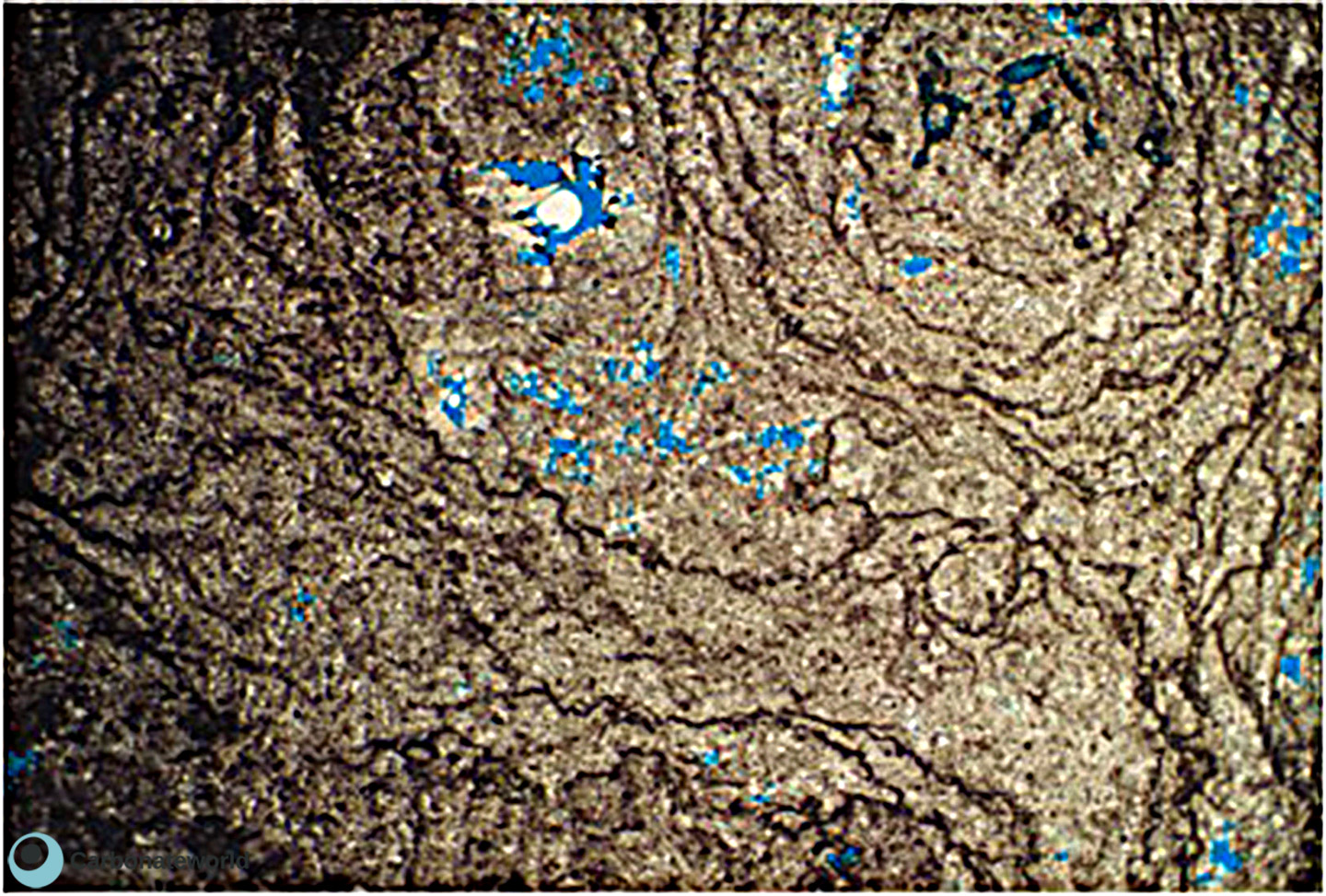

Micrite crust
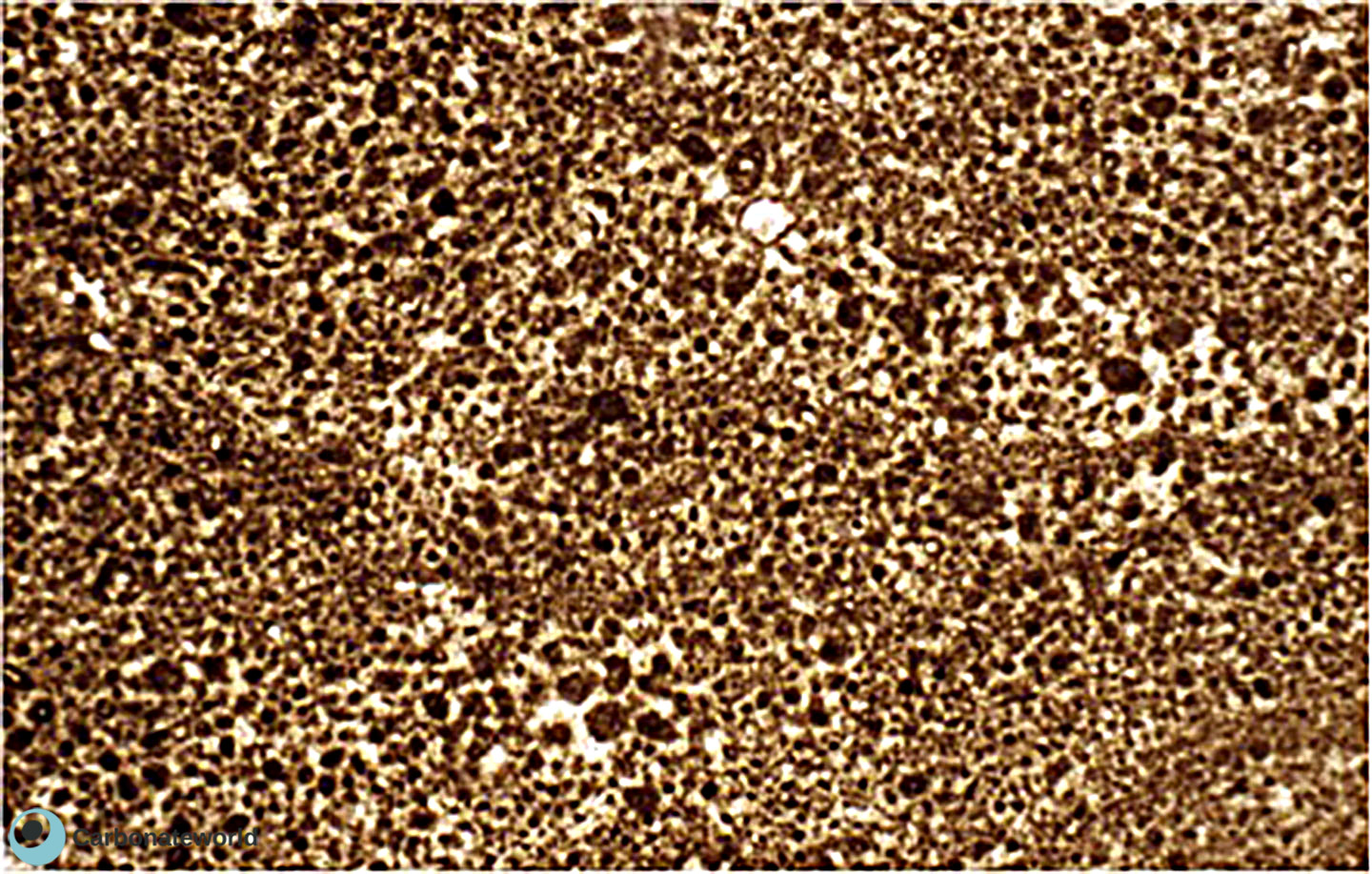

Peloidal micrite
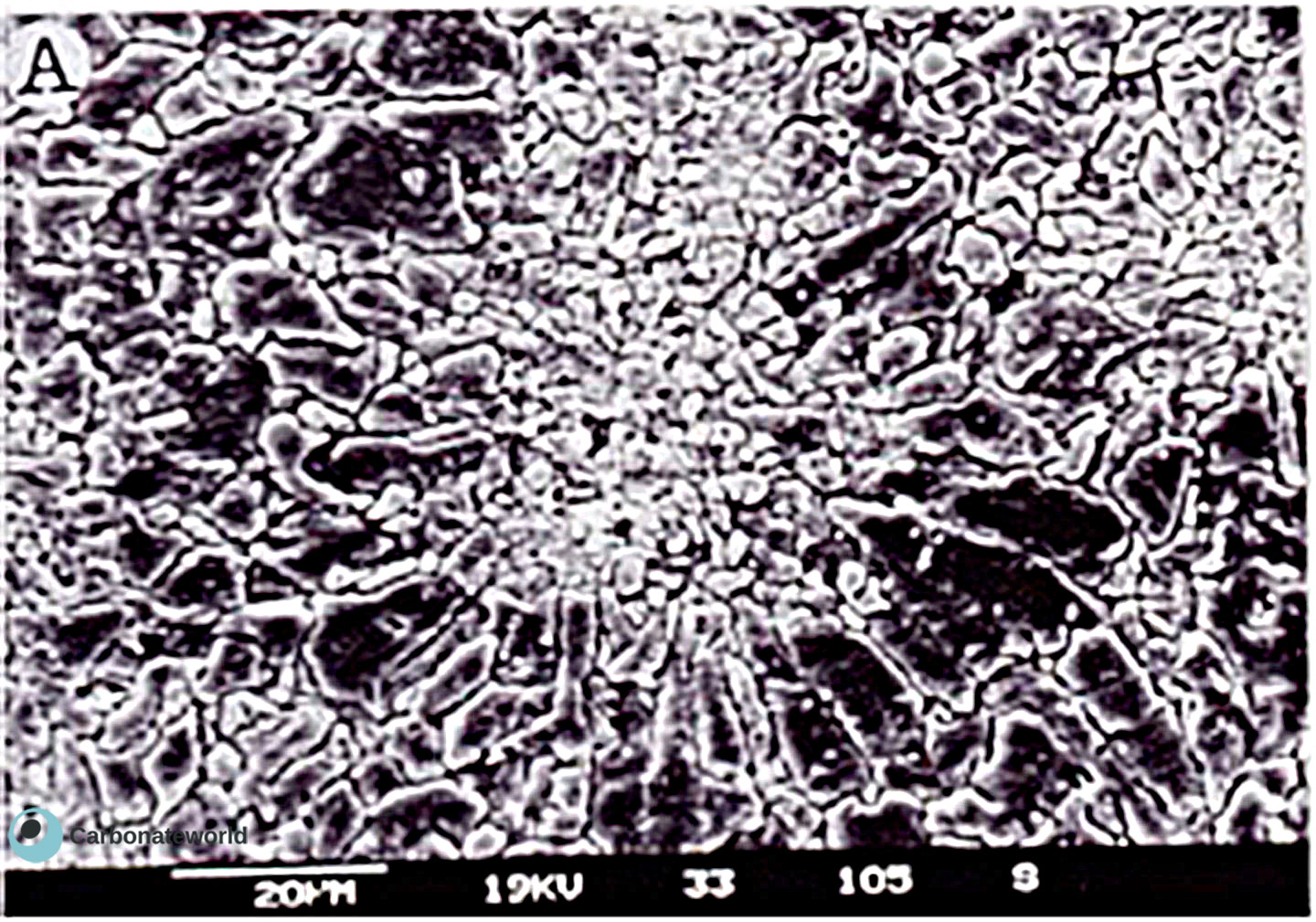
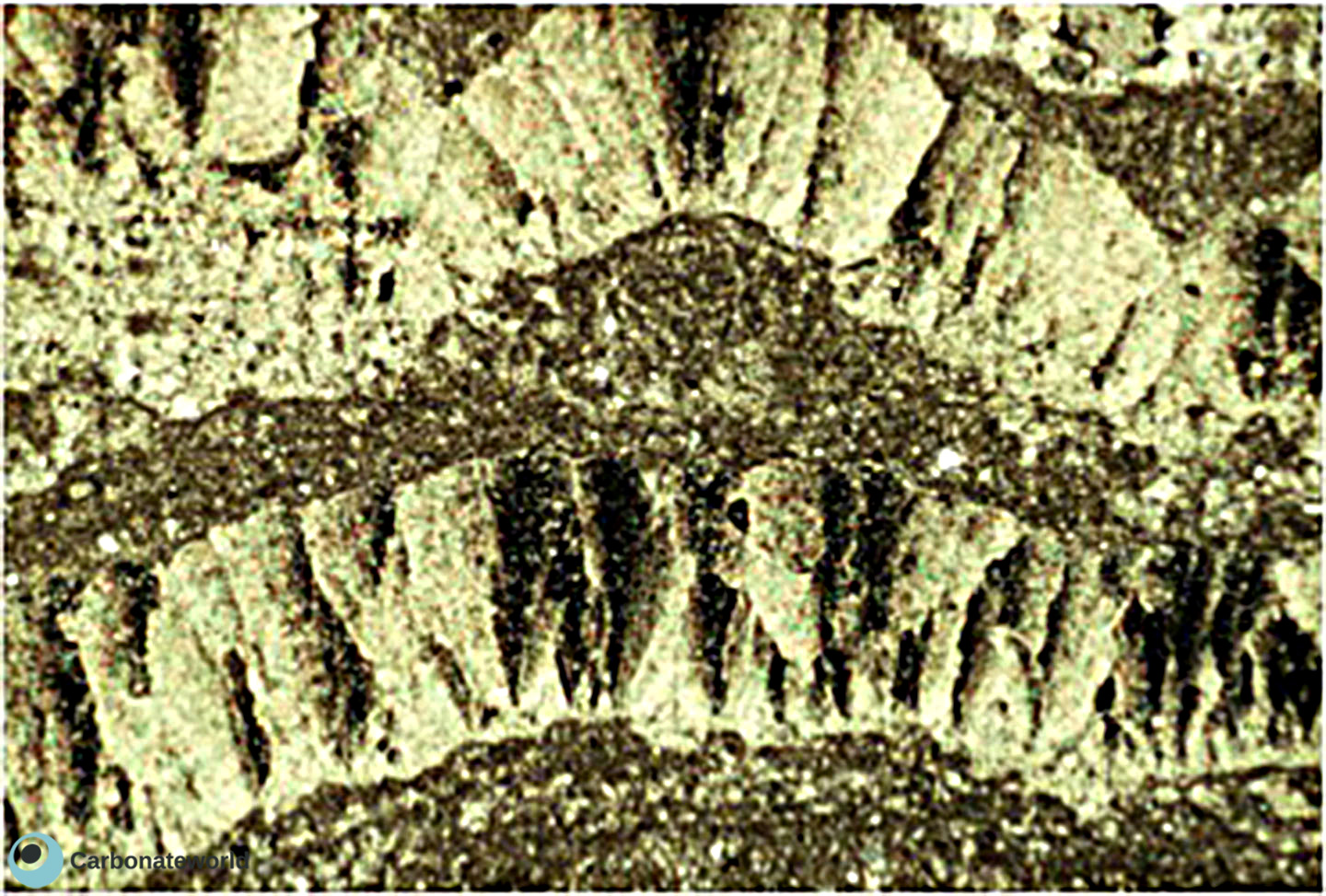
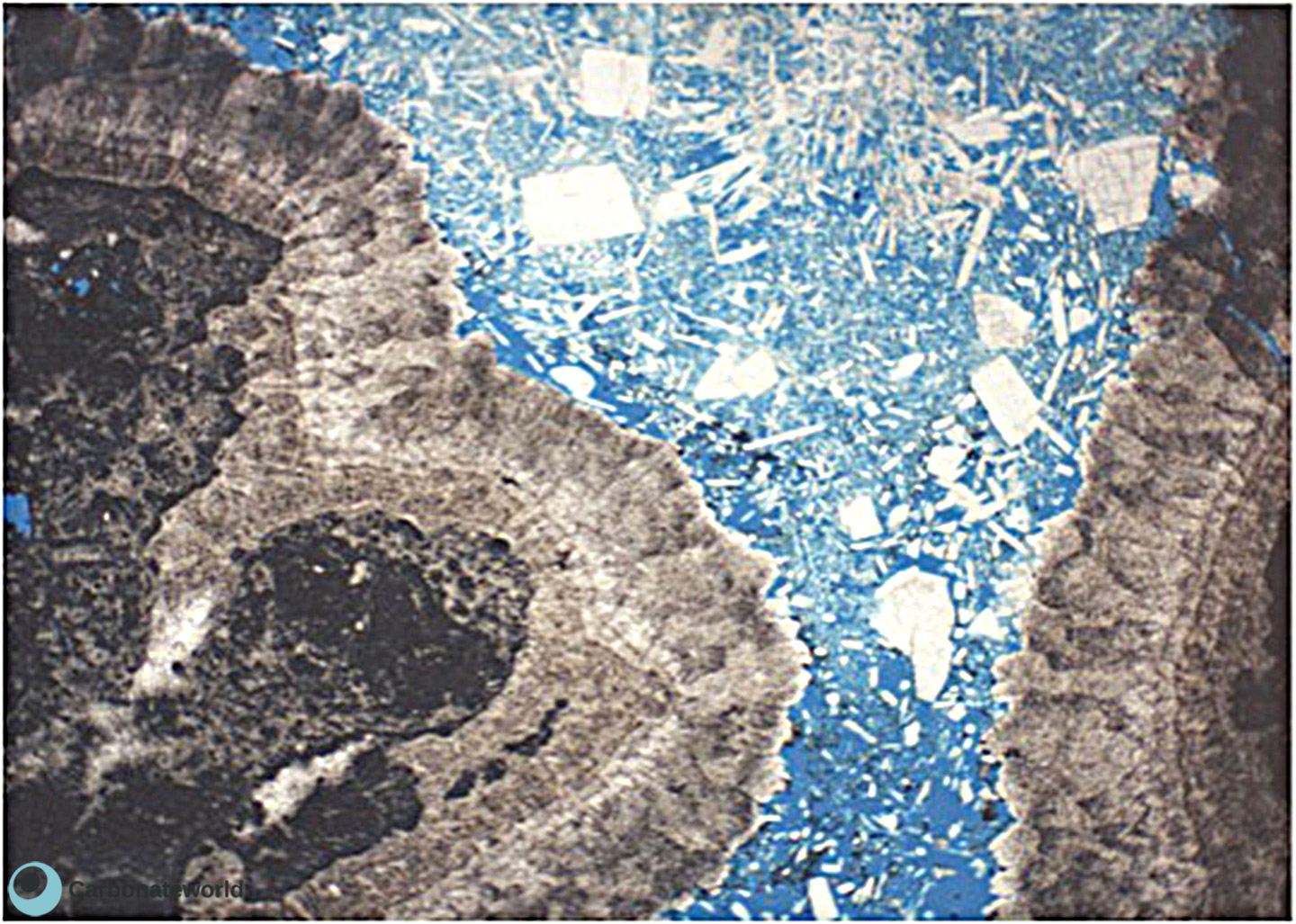

Radiaxial fibrous calcite

Clotted peloidal micrite
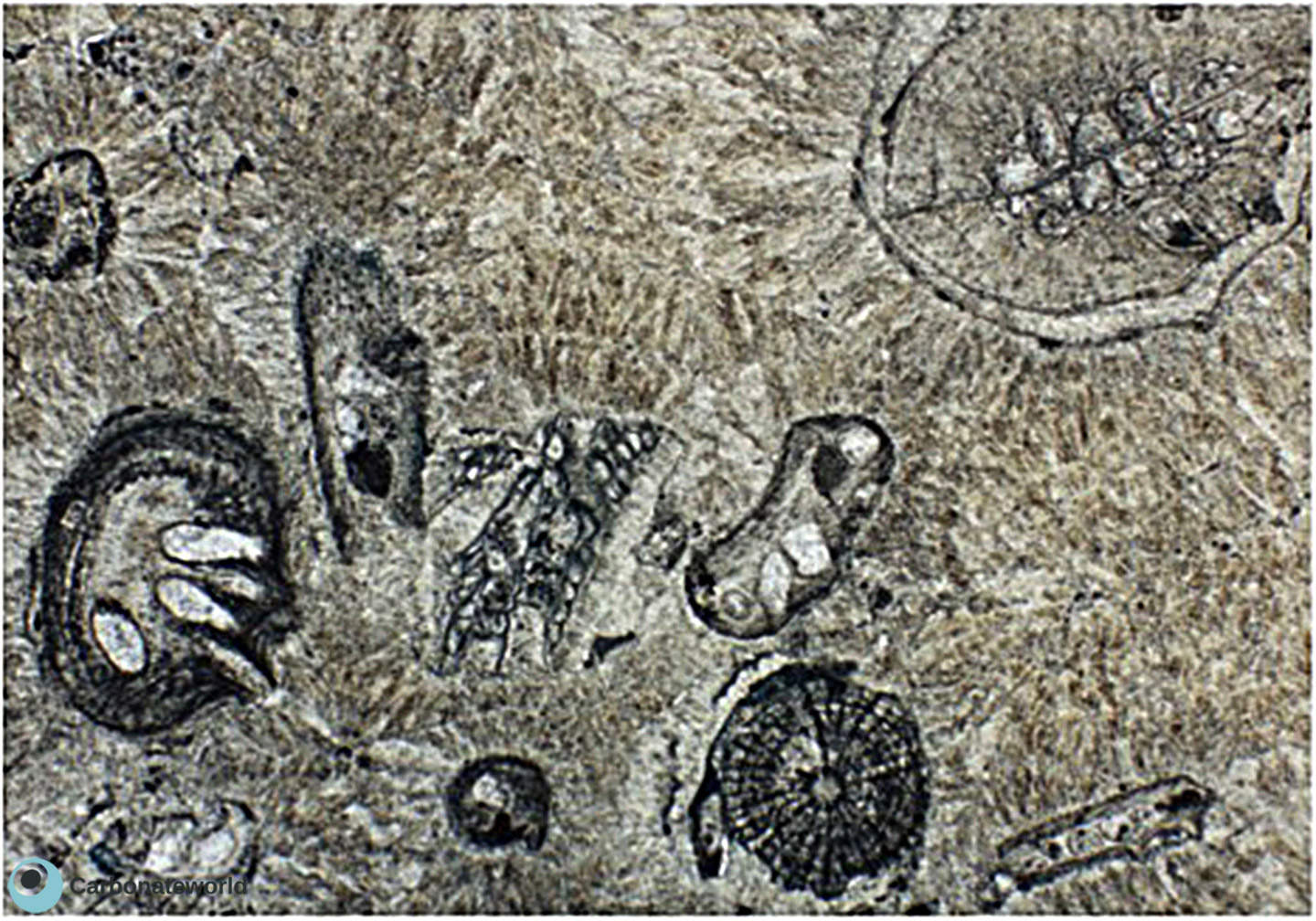

Radiaxial fibrous calcite

Bryozoan
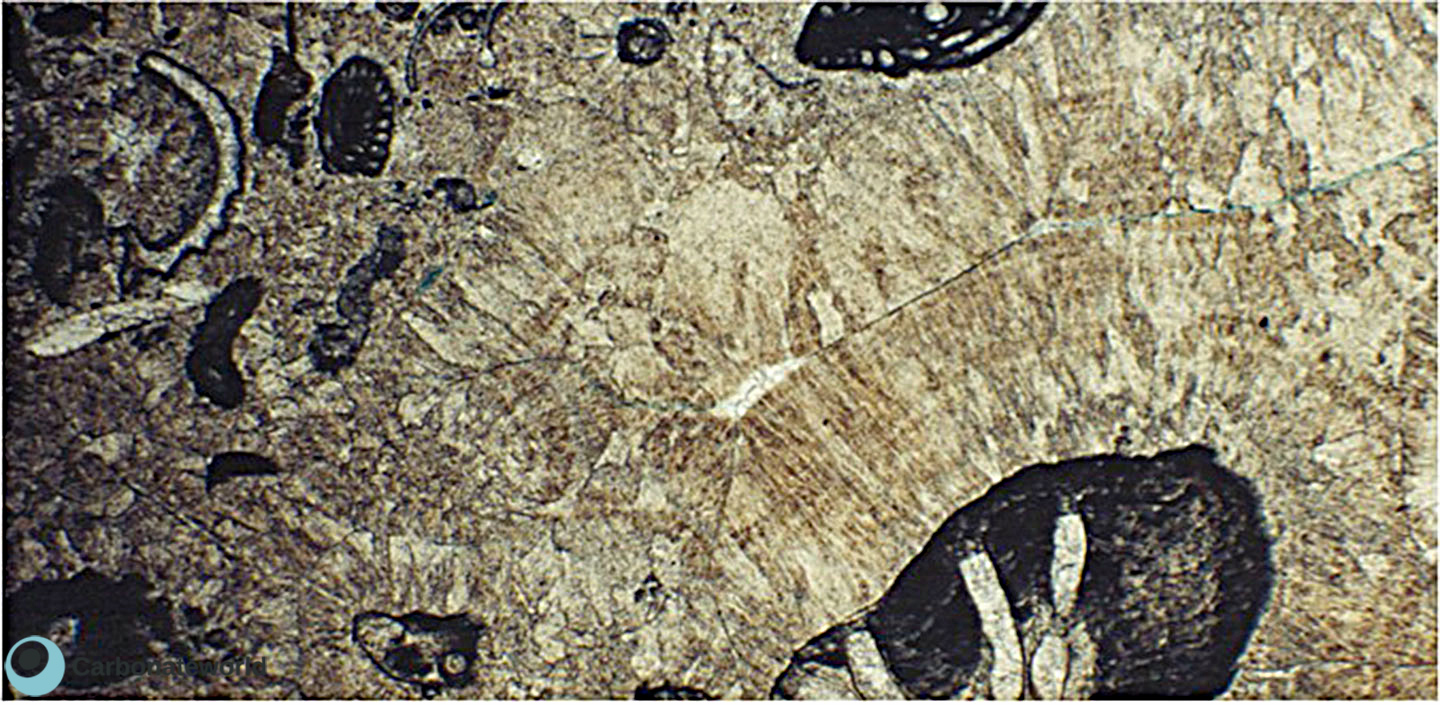

Radiaxial fibrous calcite

Bryozoan
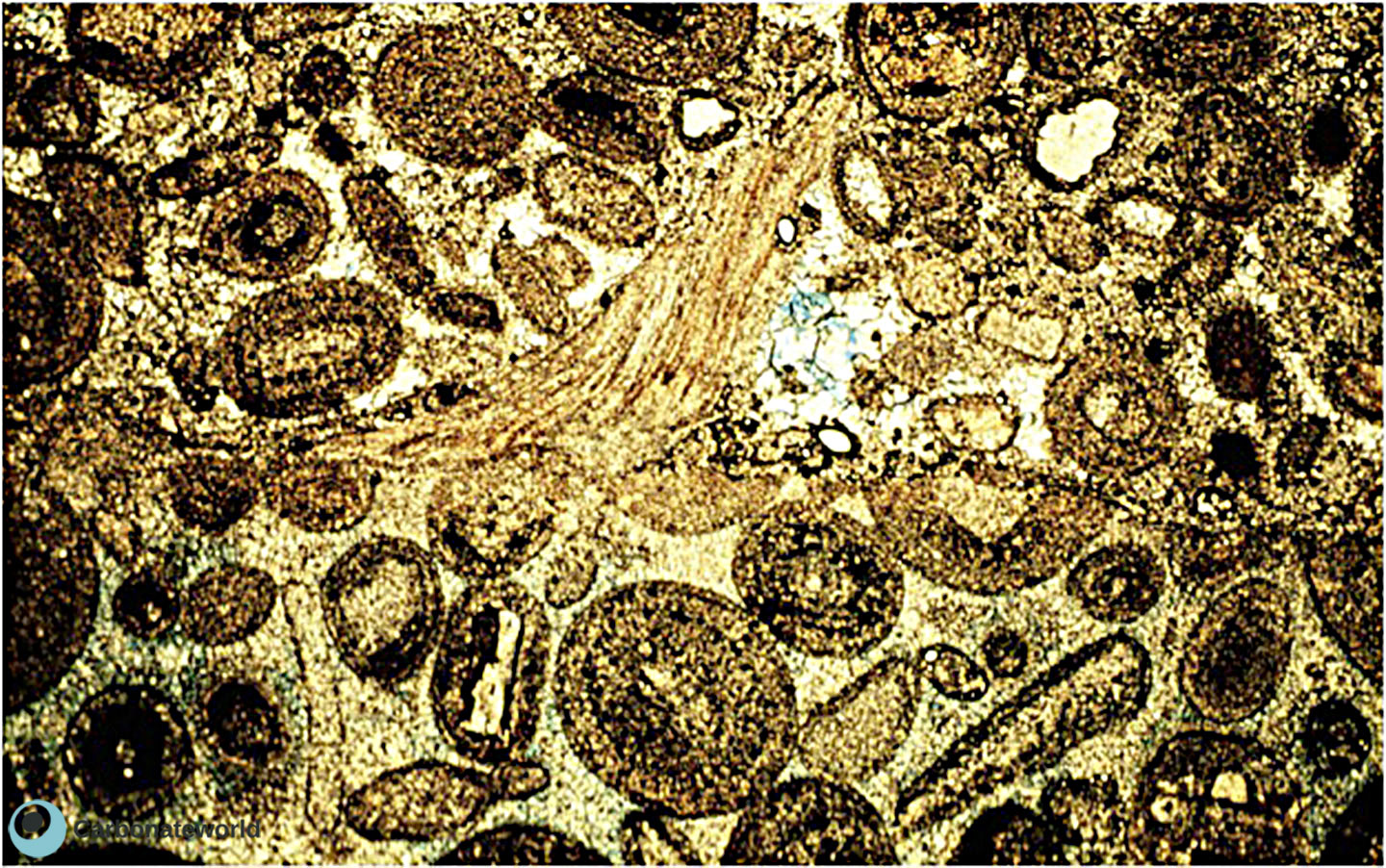

Hardground encrusted by oyster
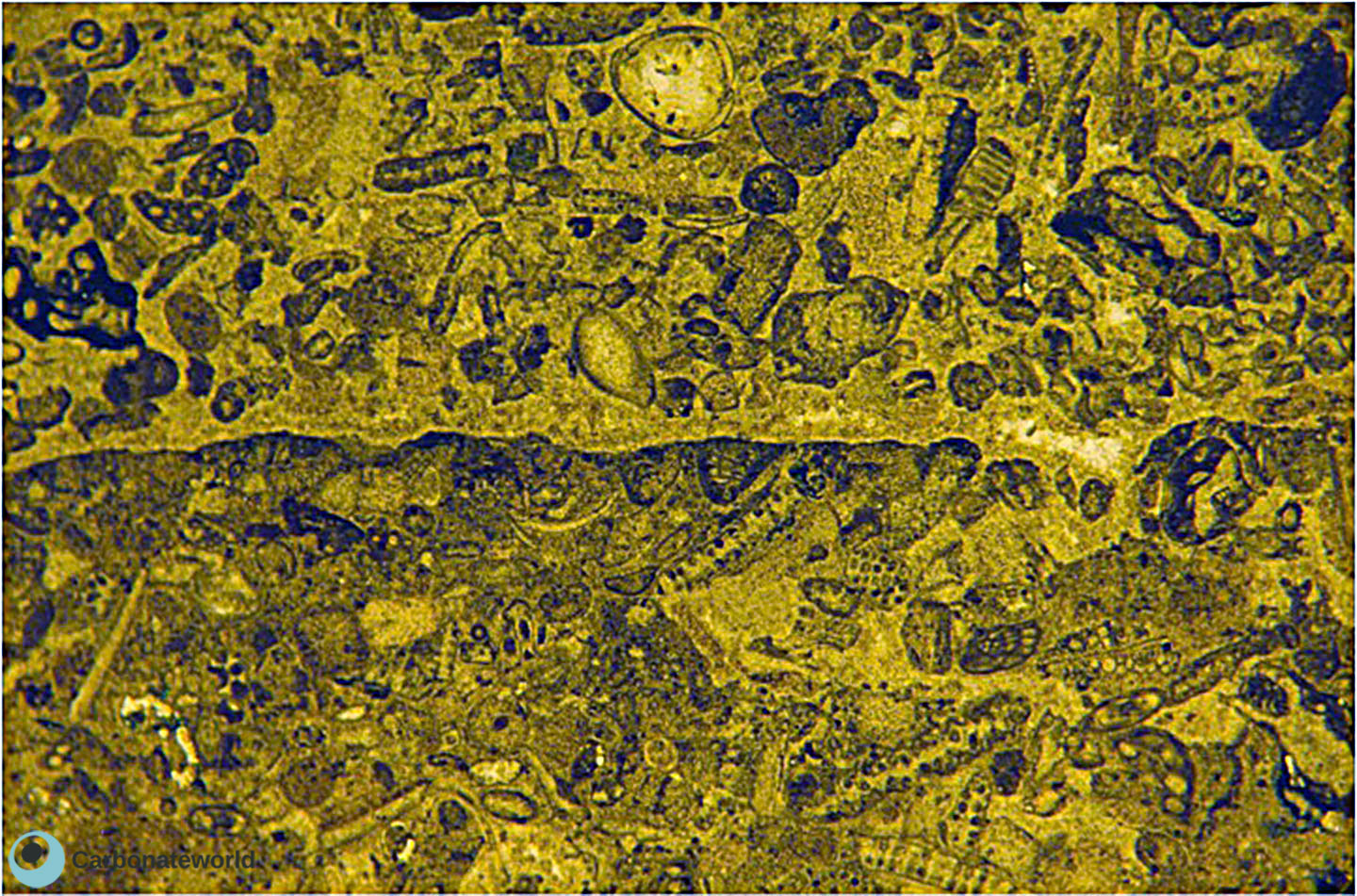

Hardground

Epimastopora
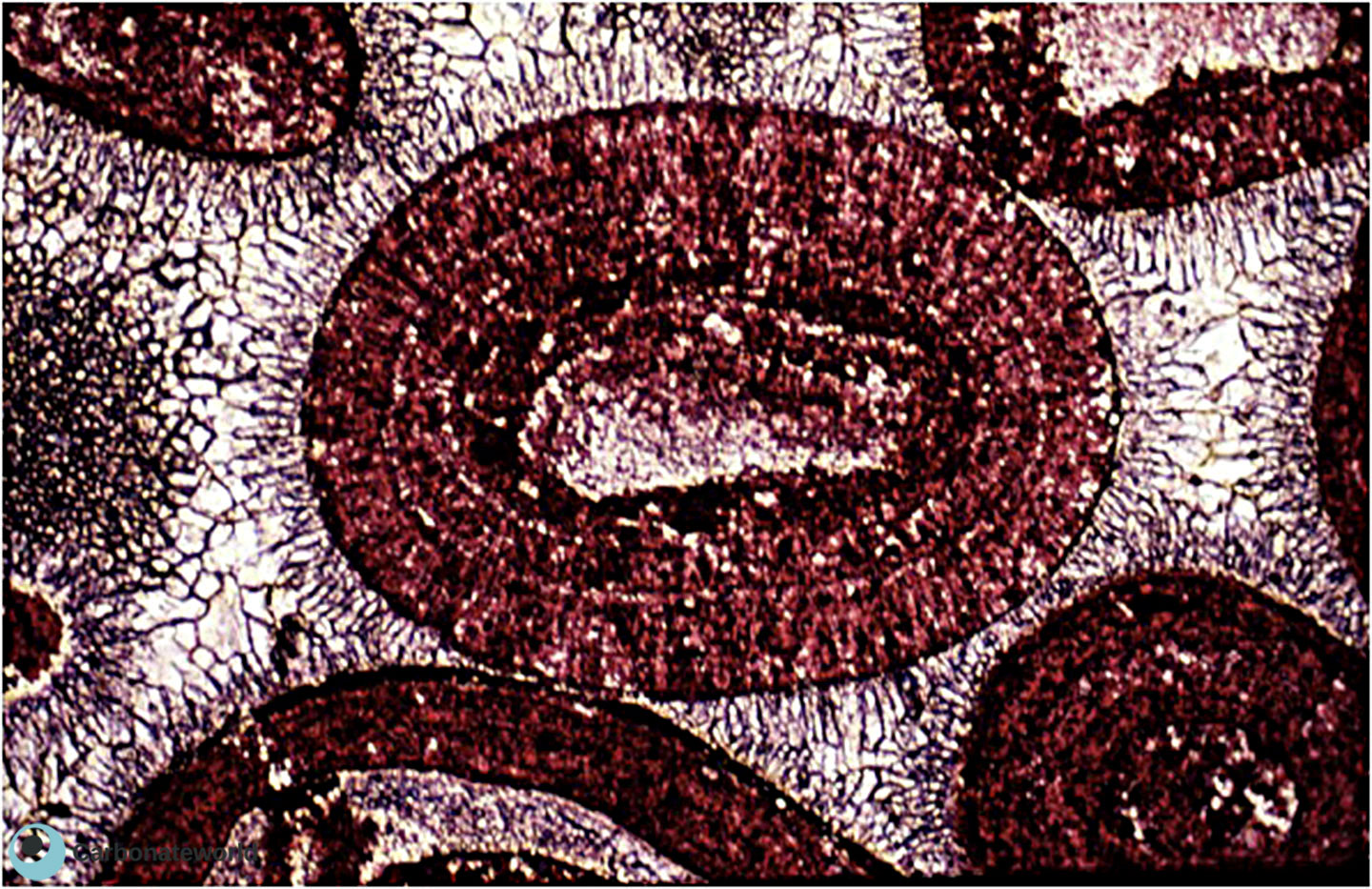

Isopachous cement

Equant sparite